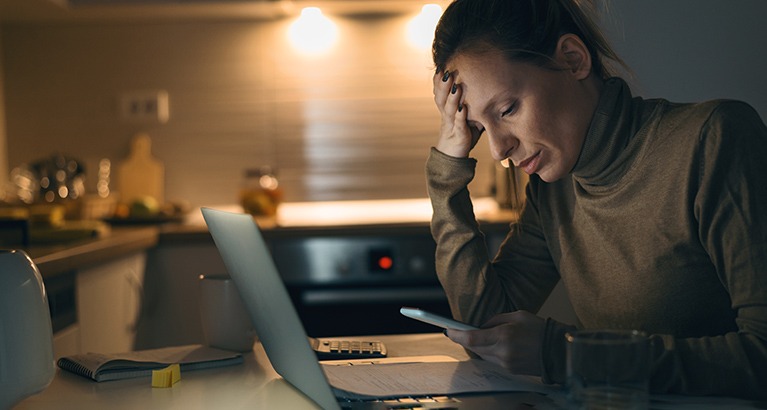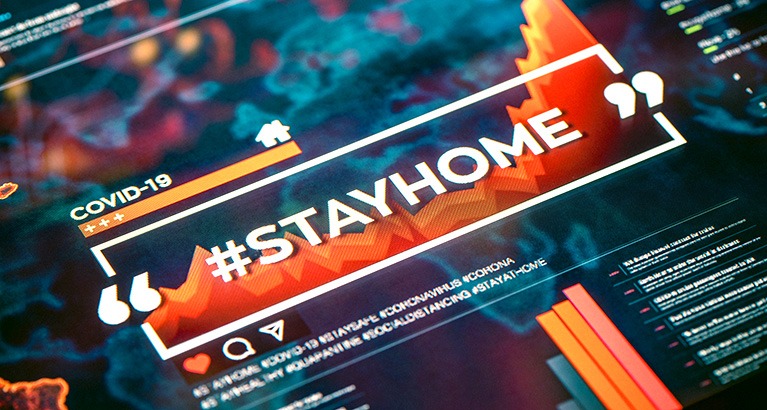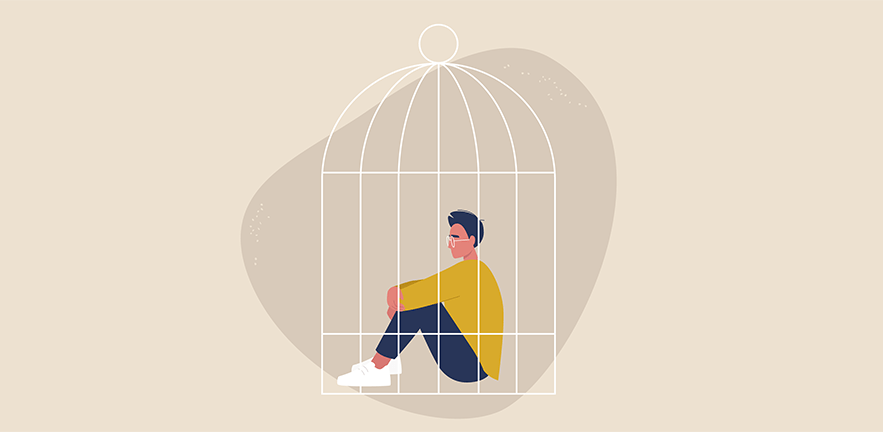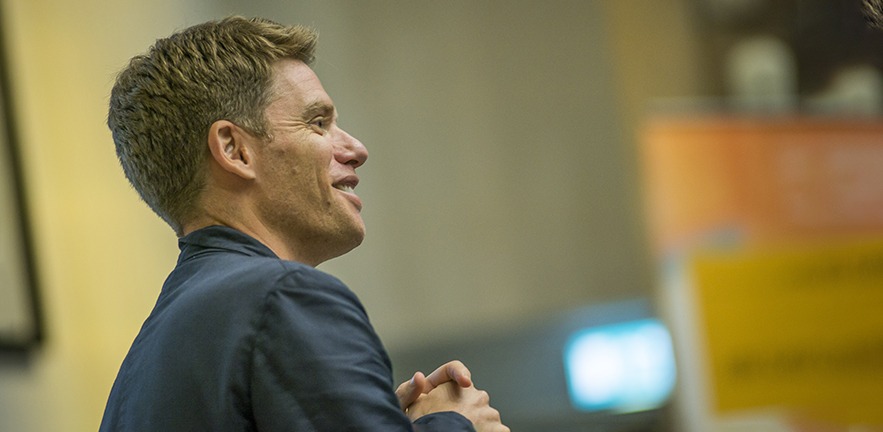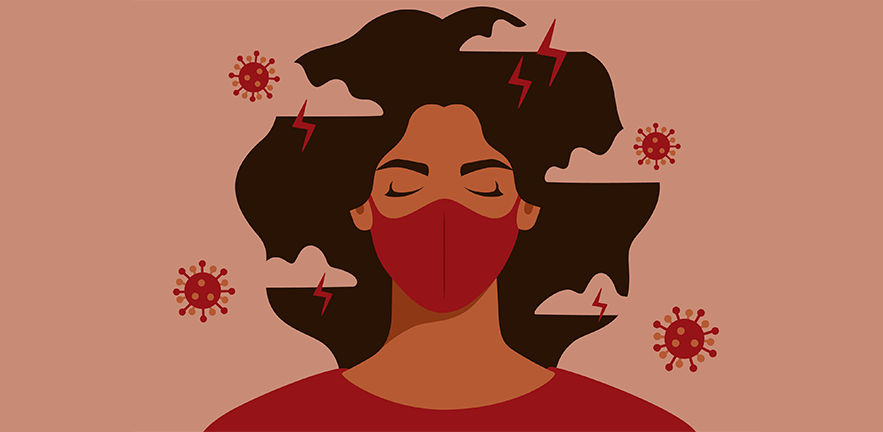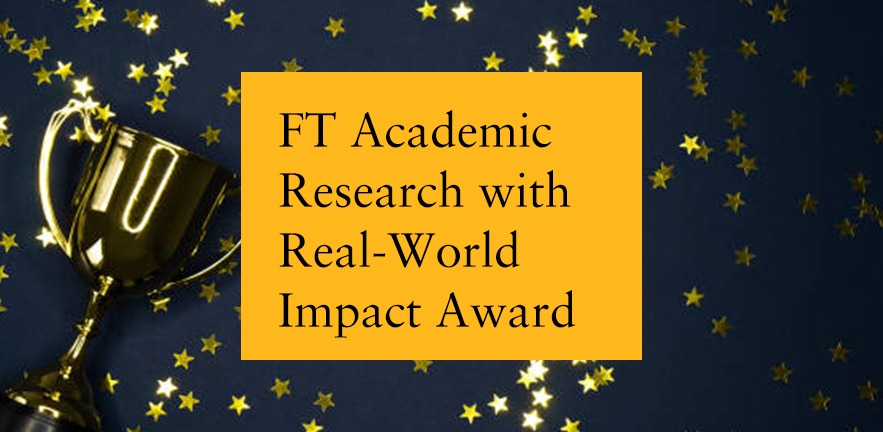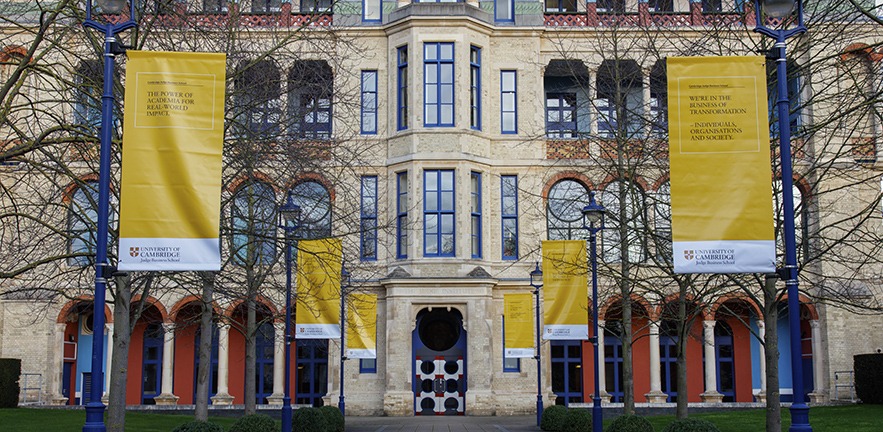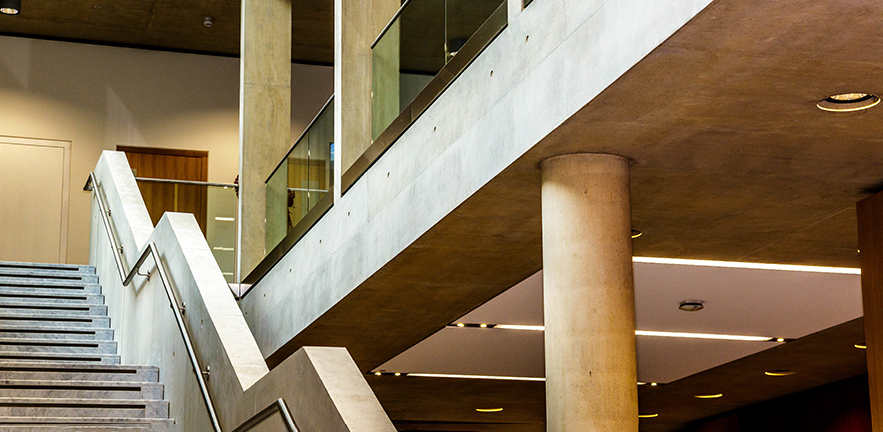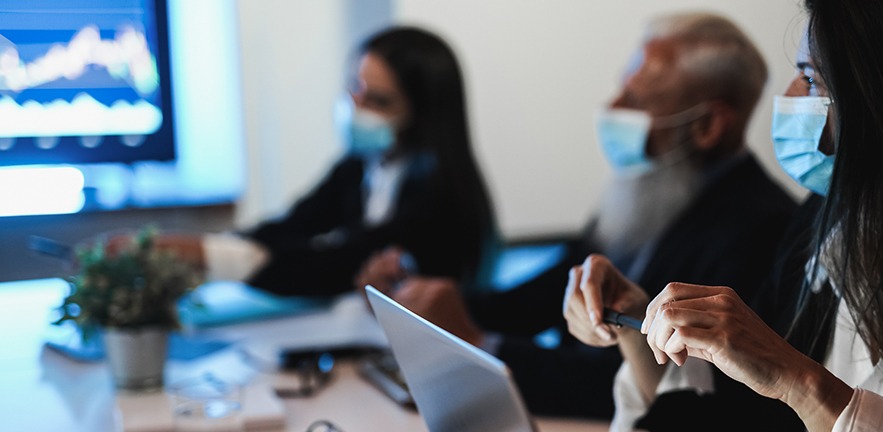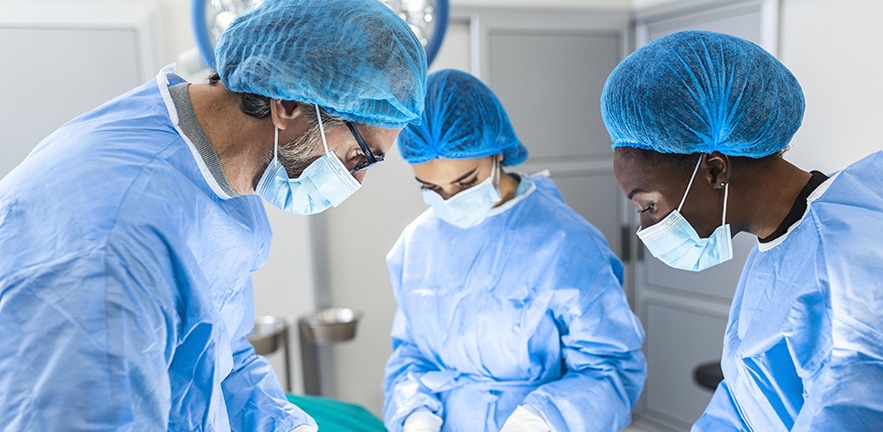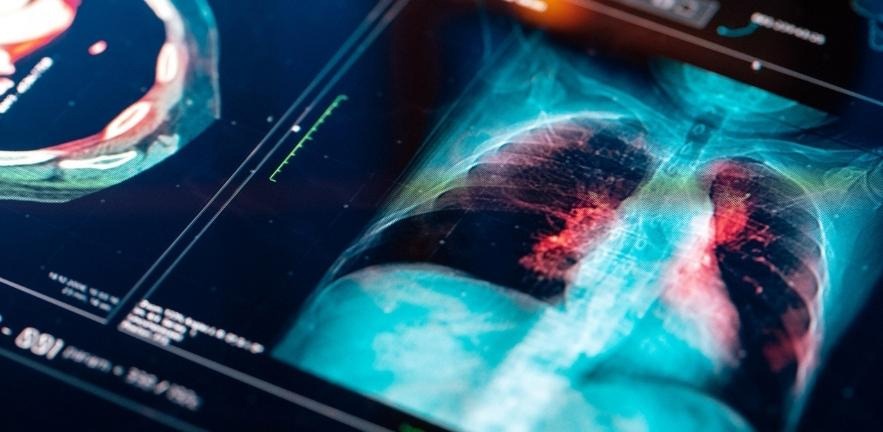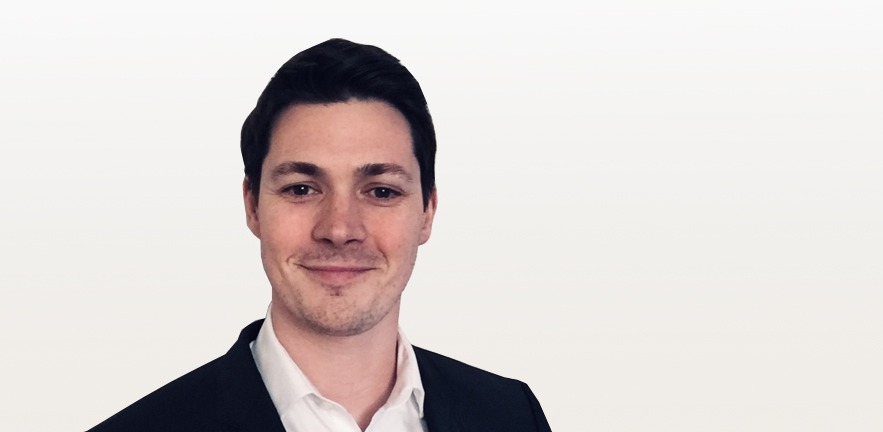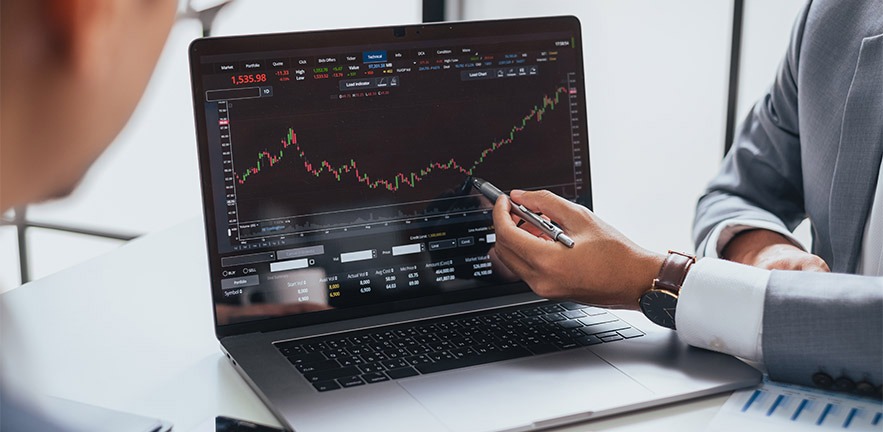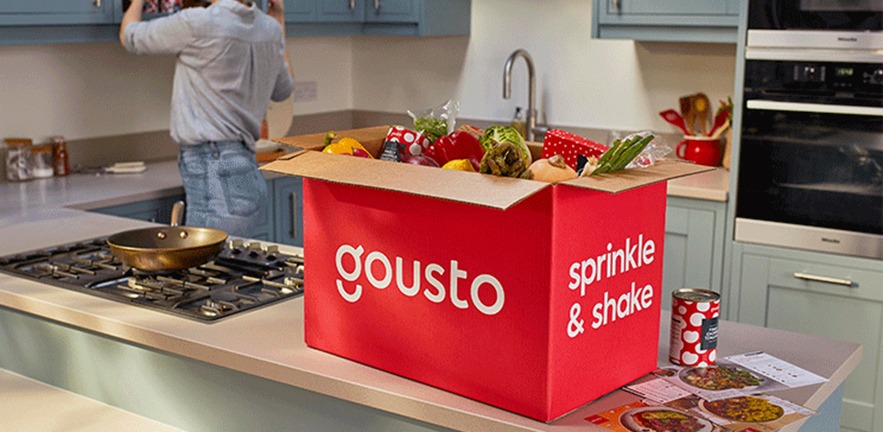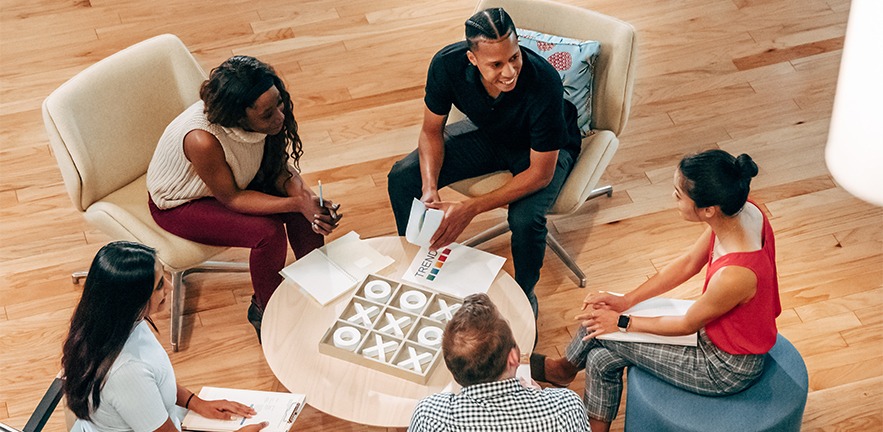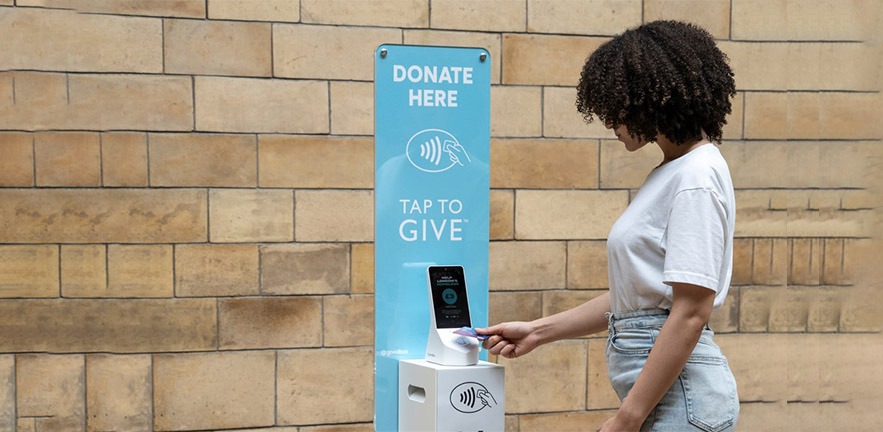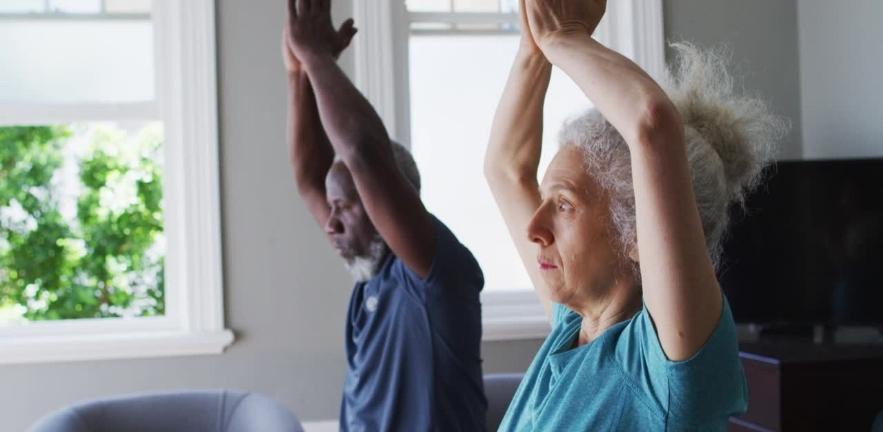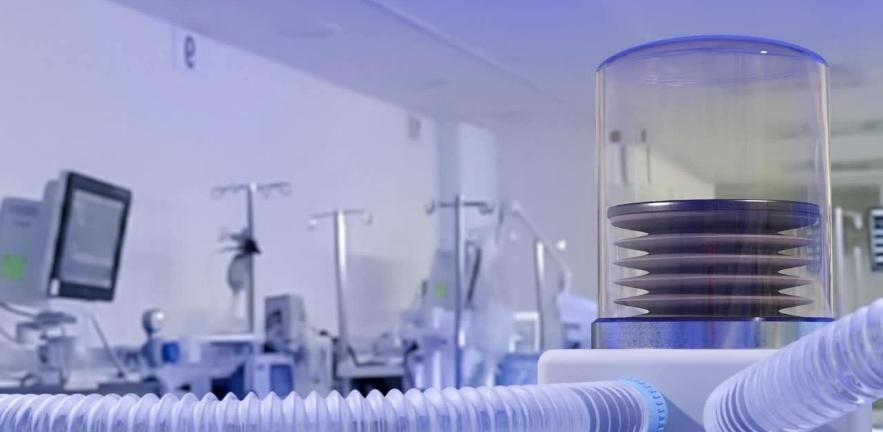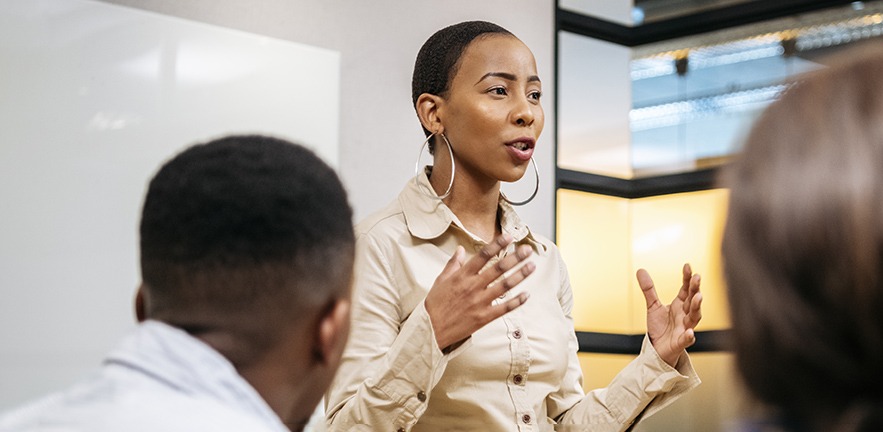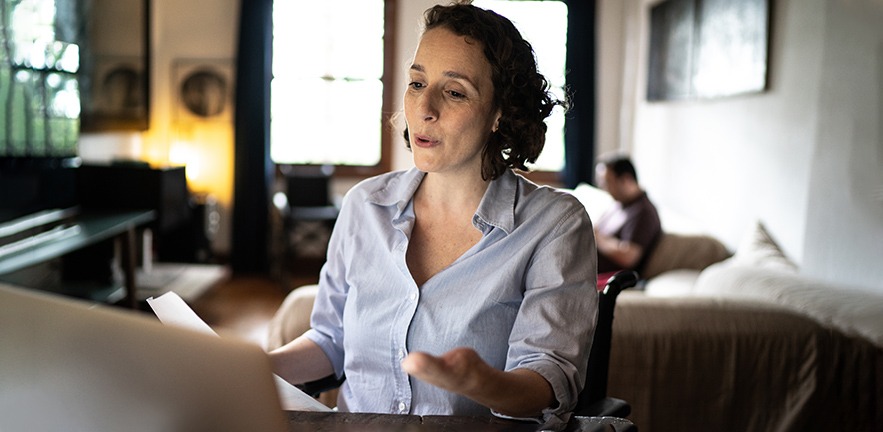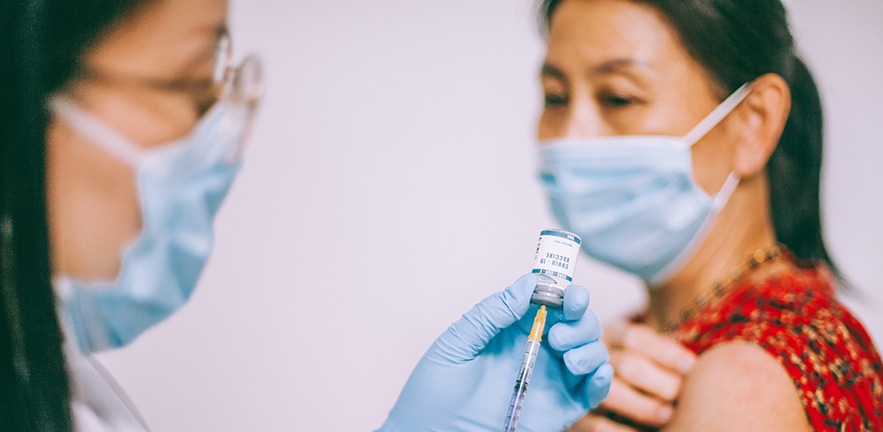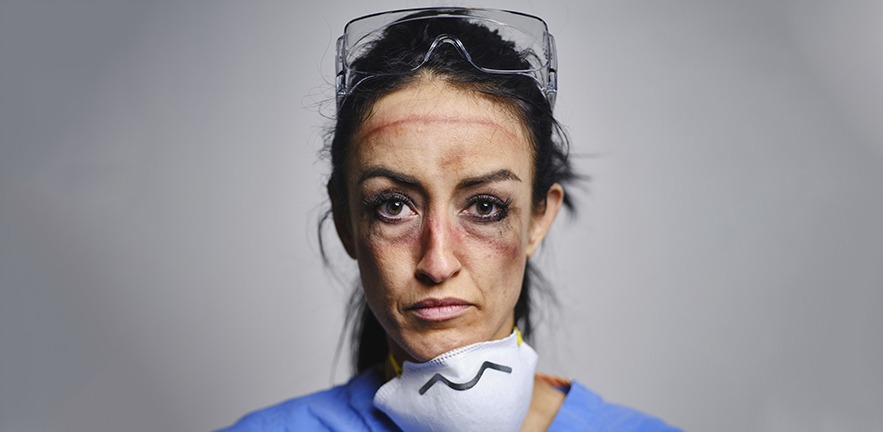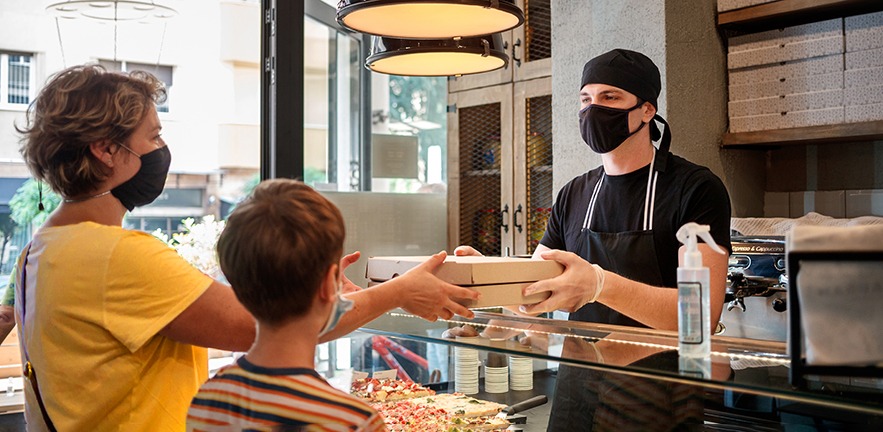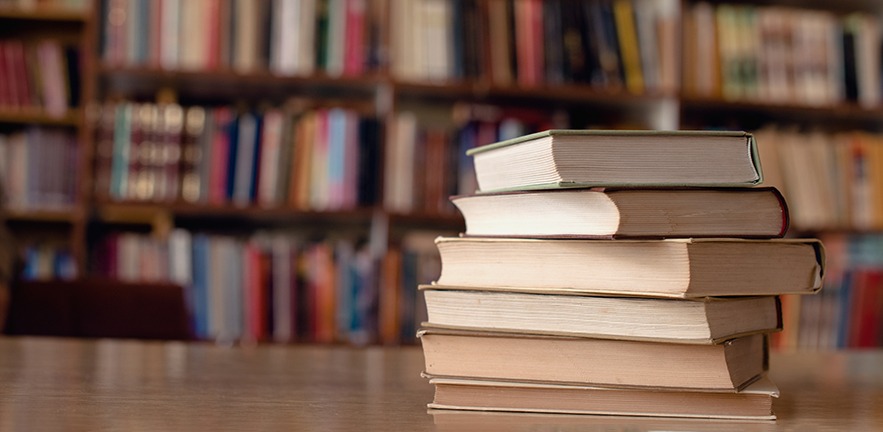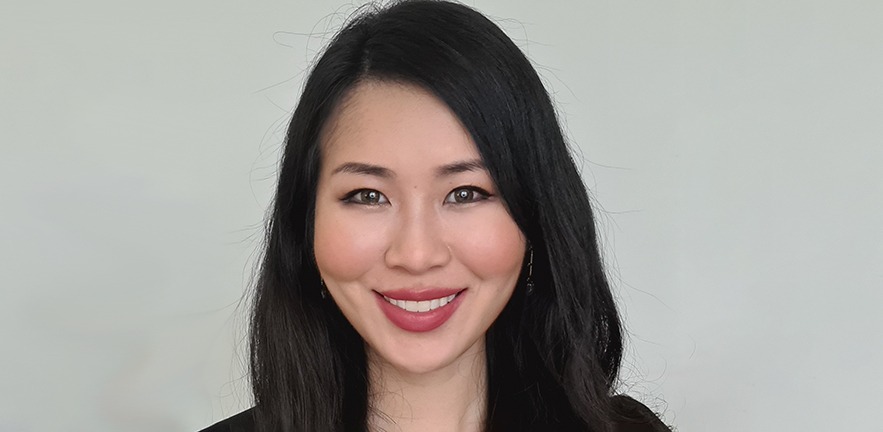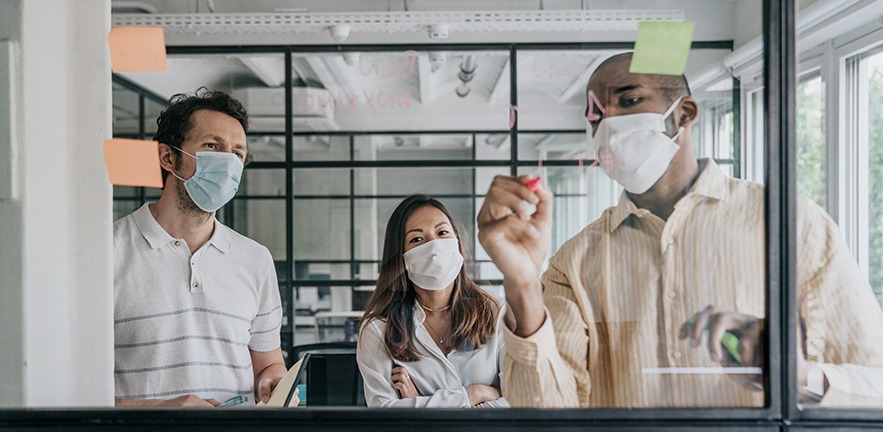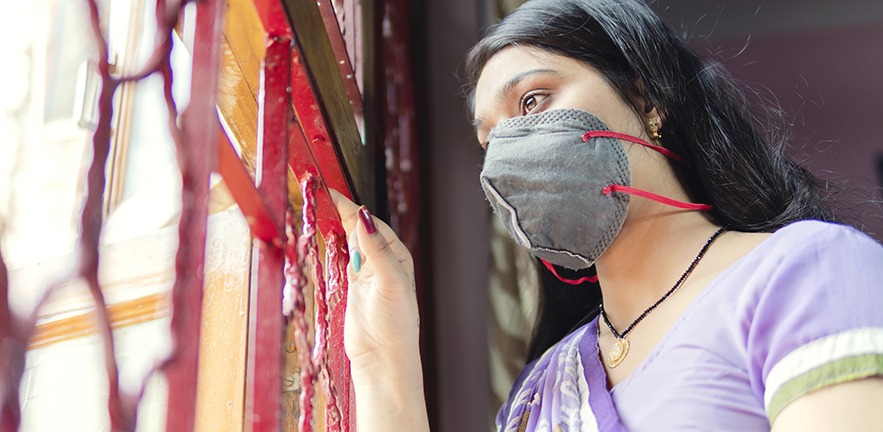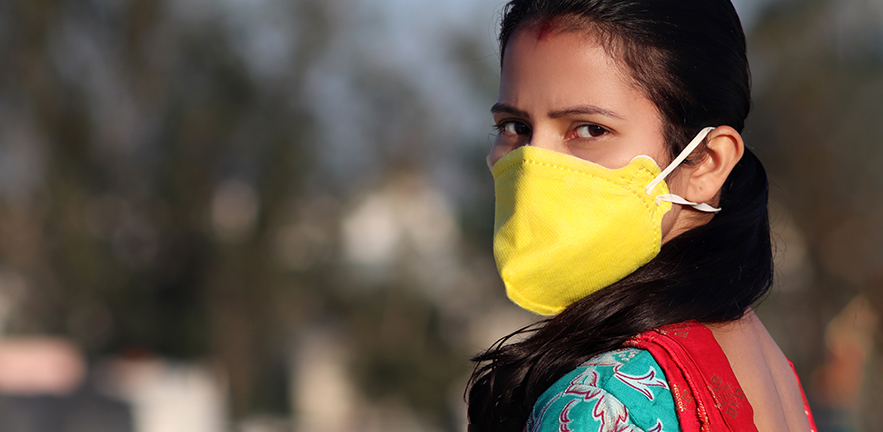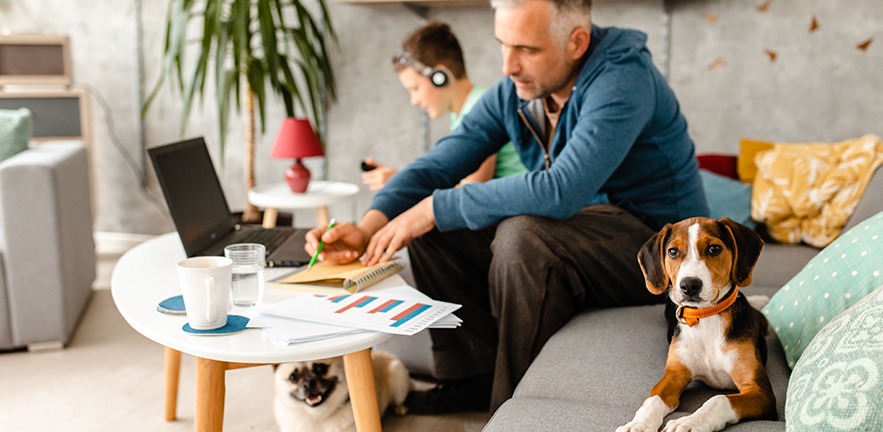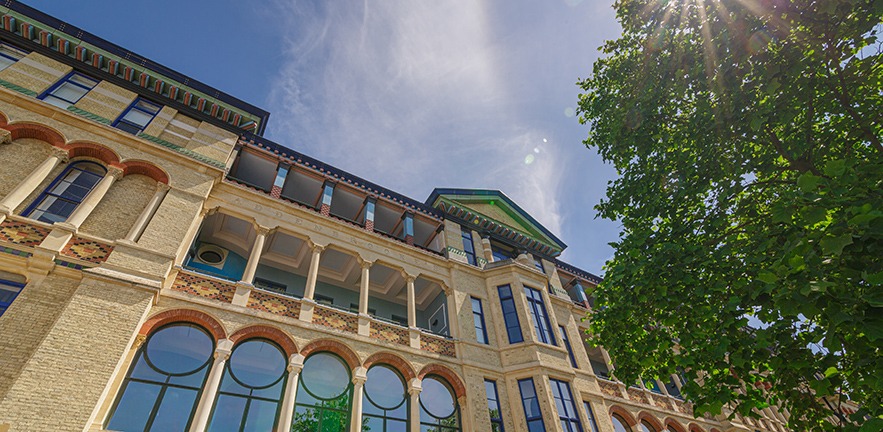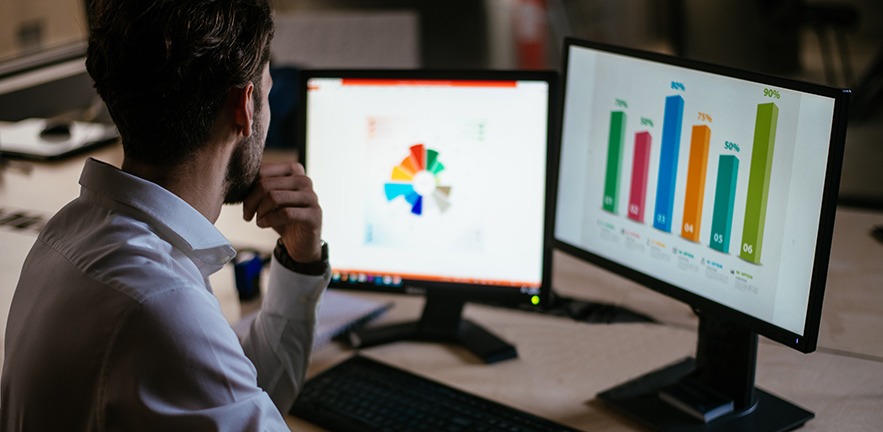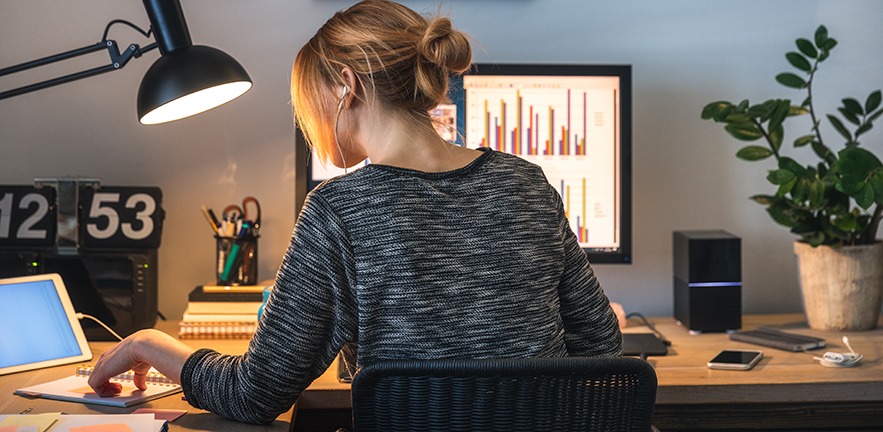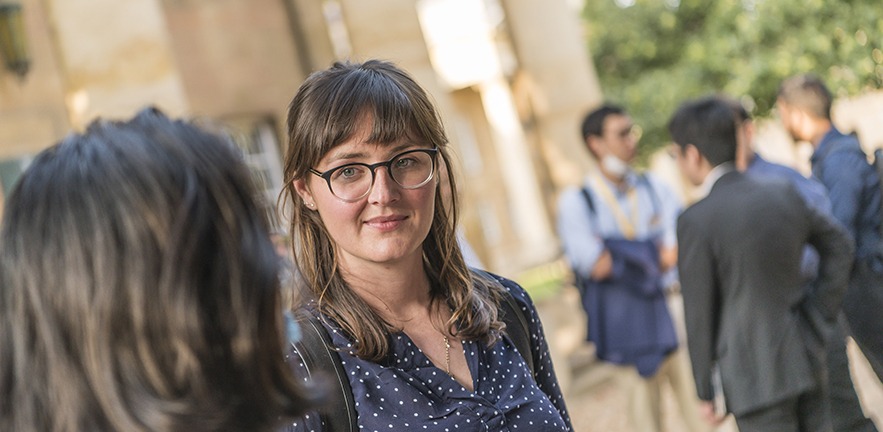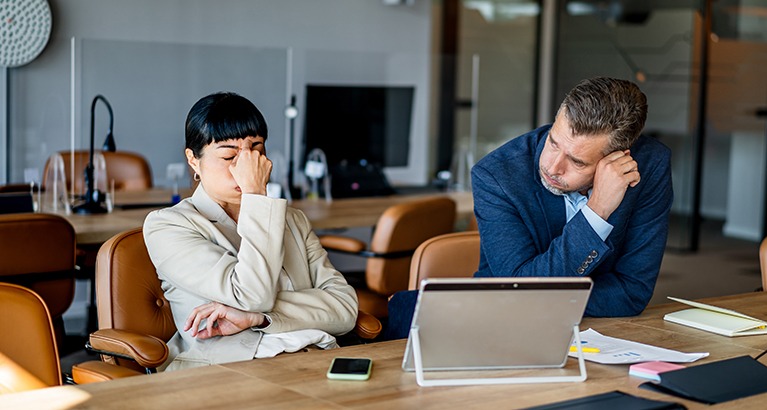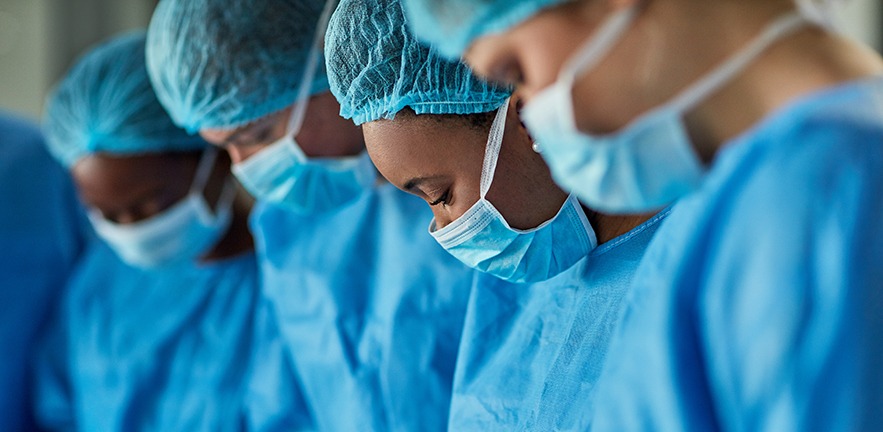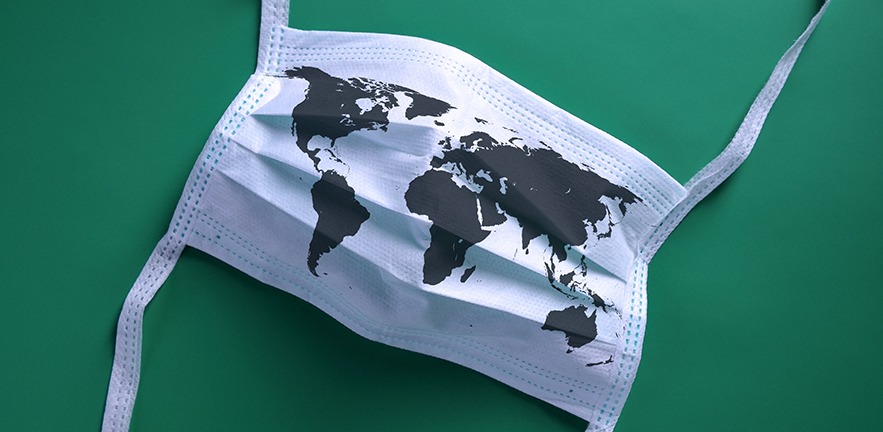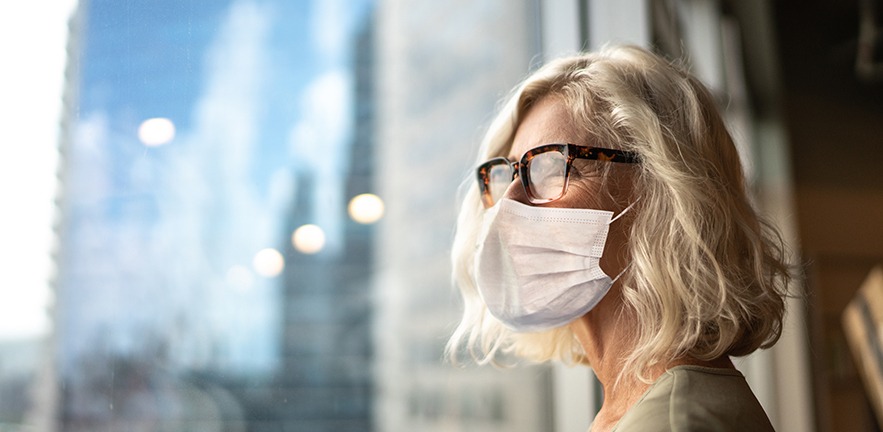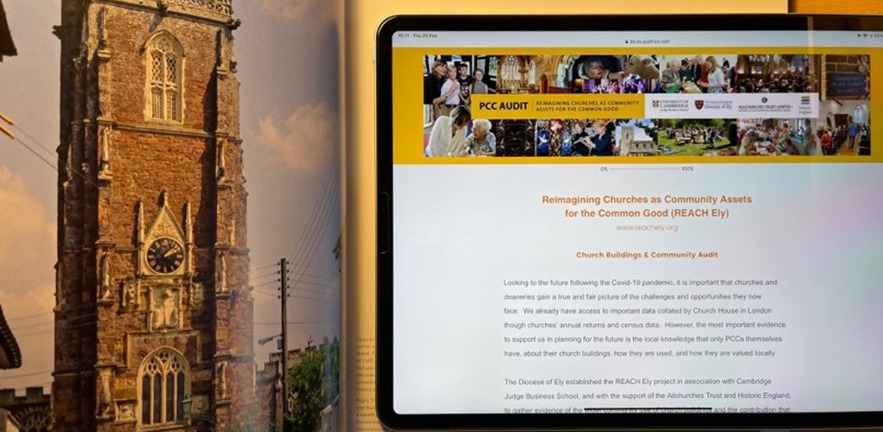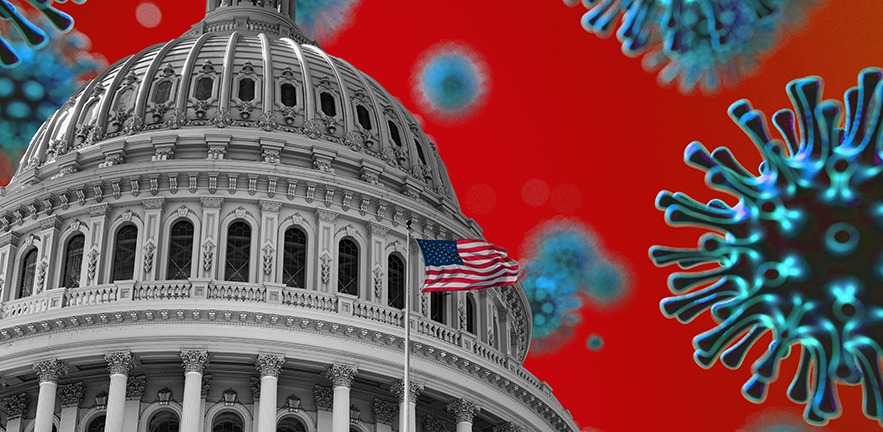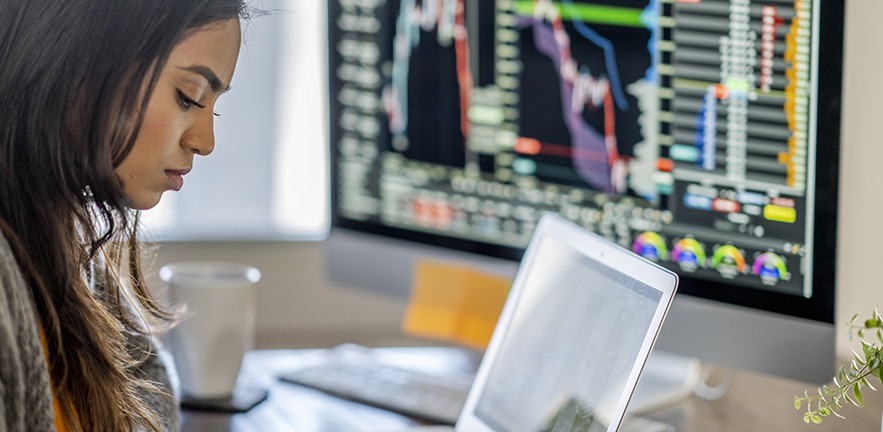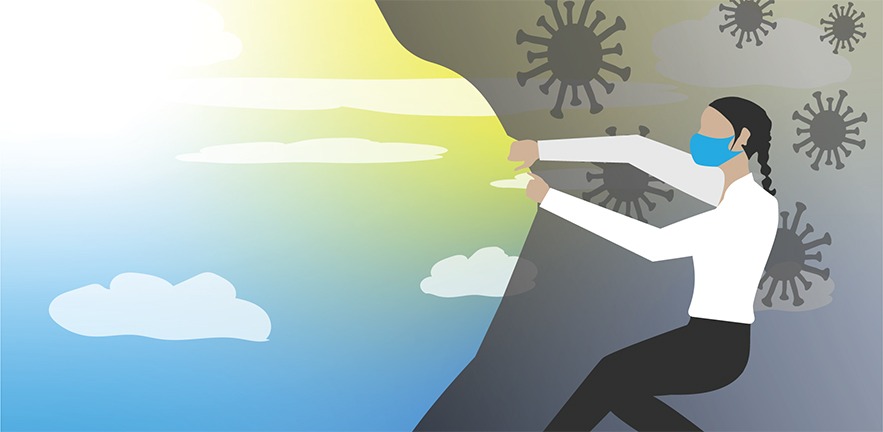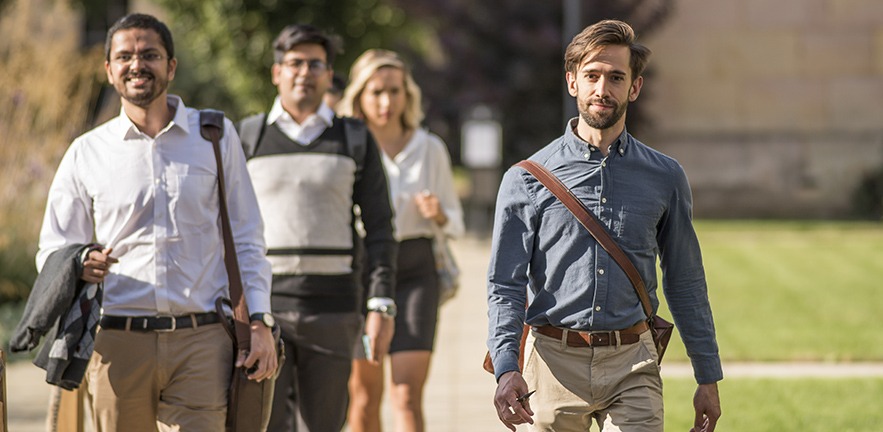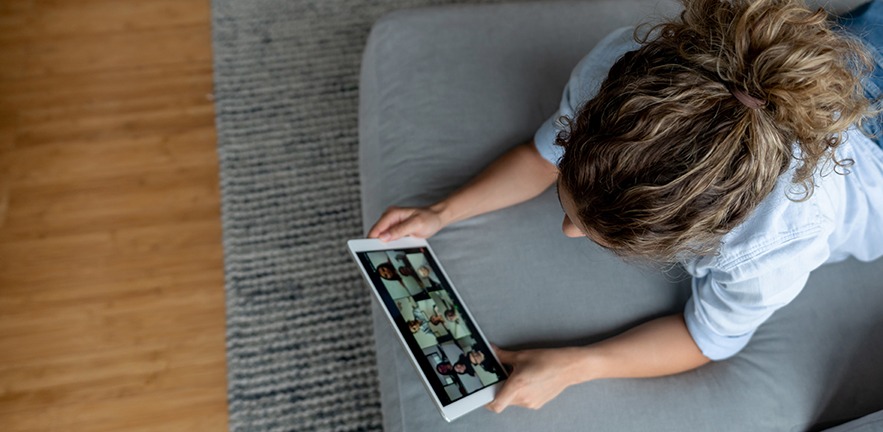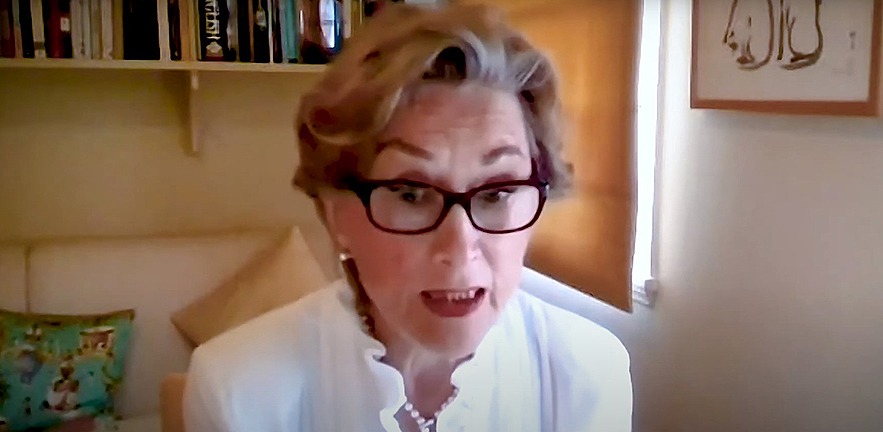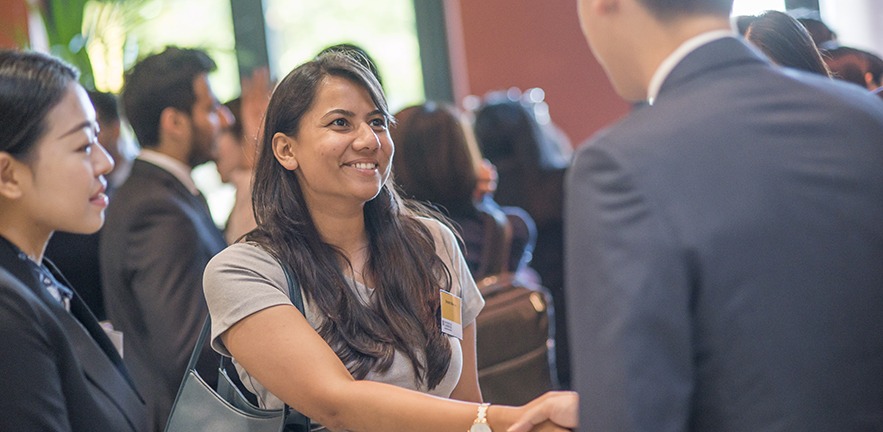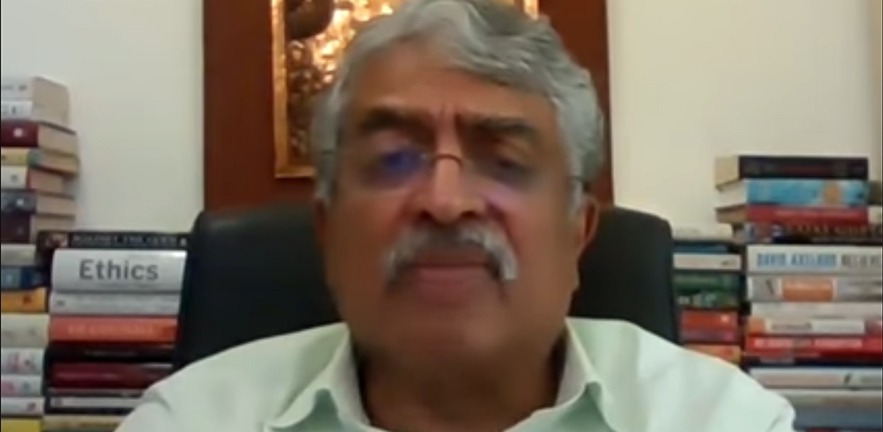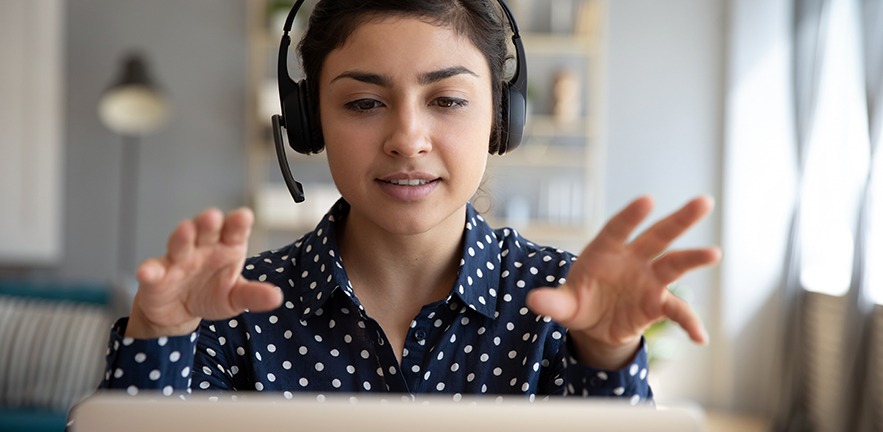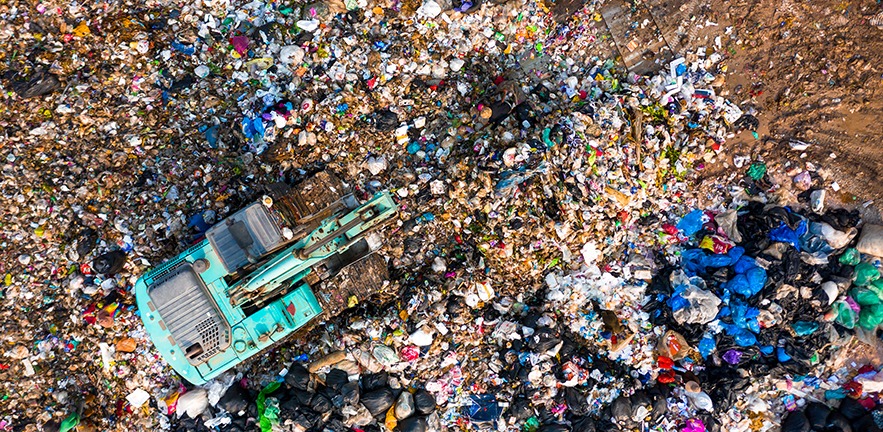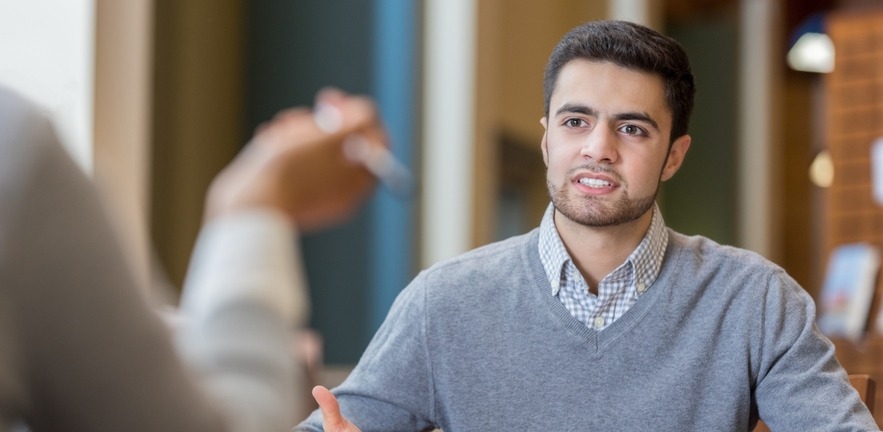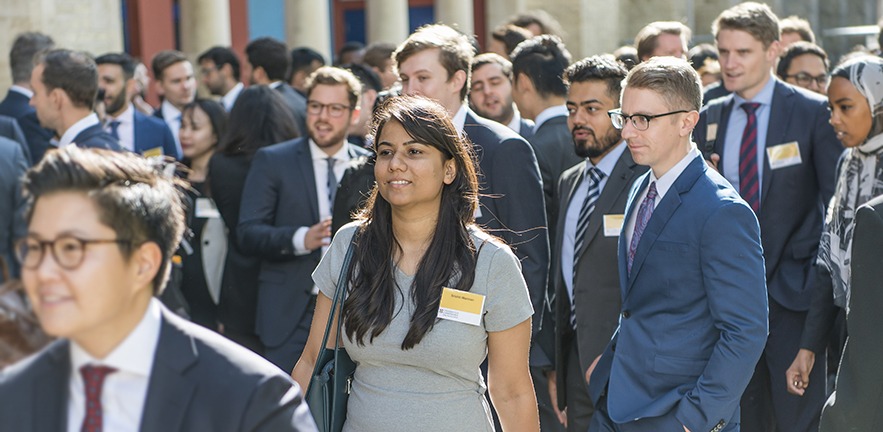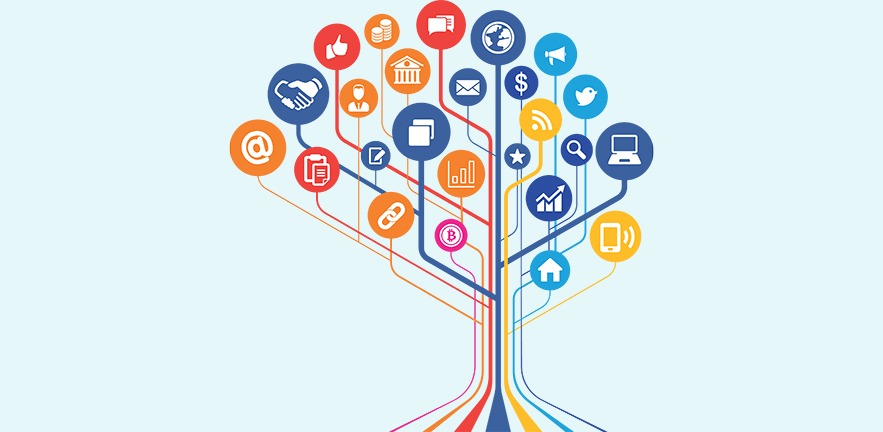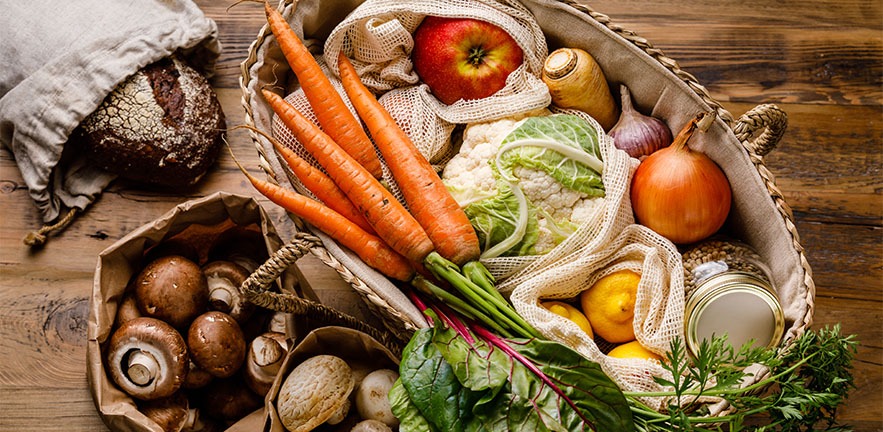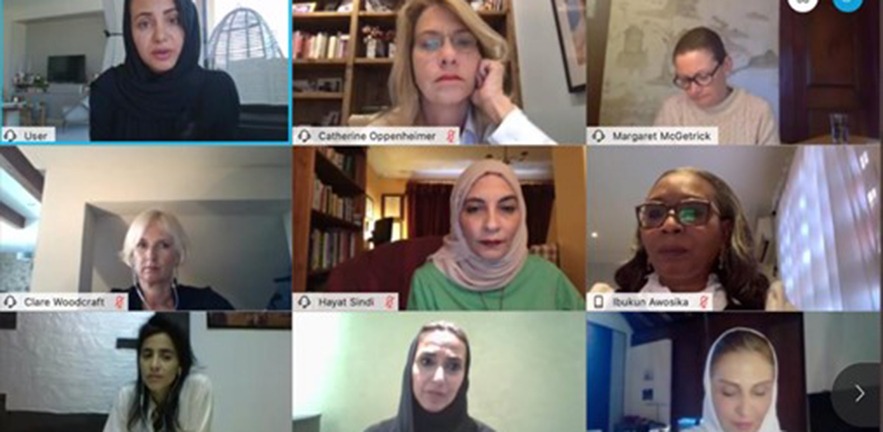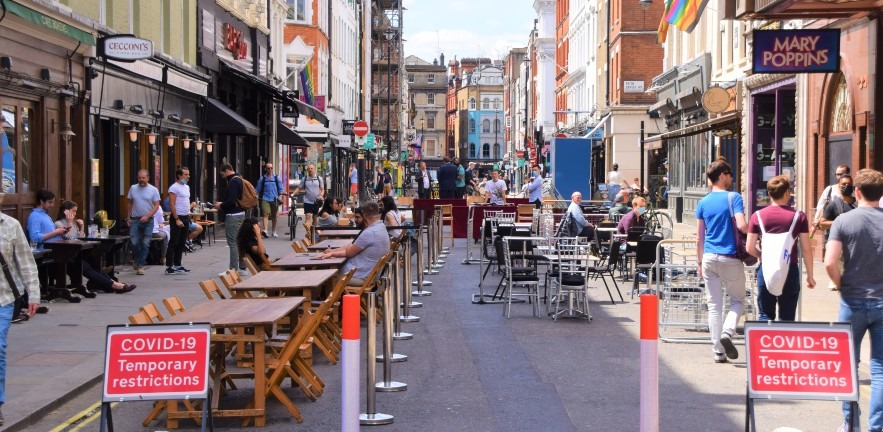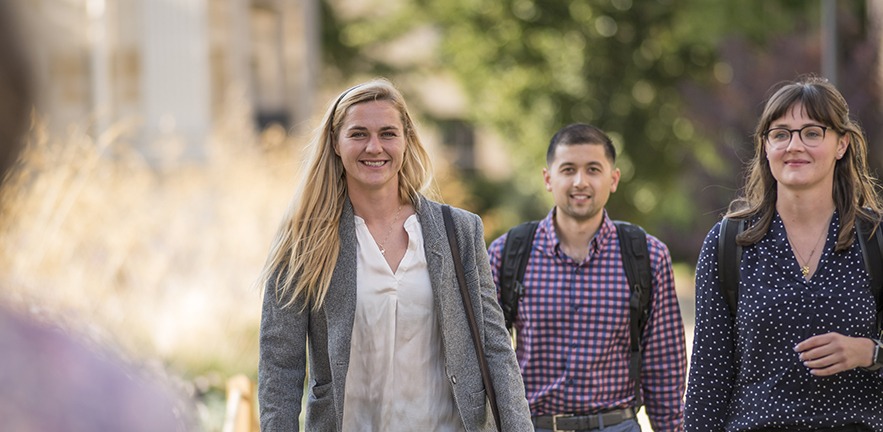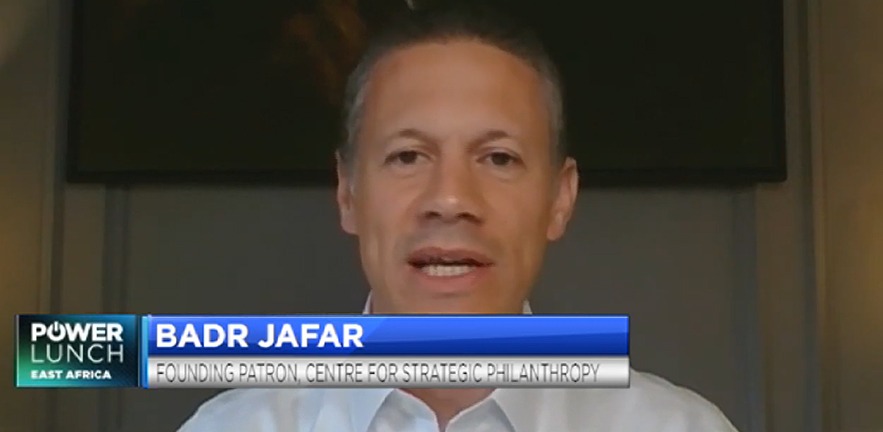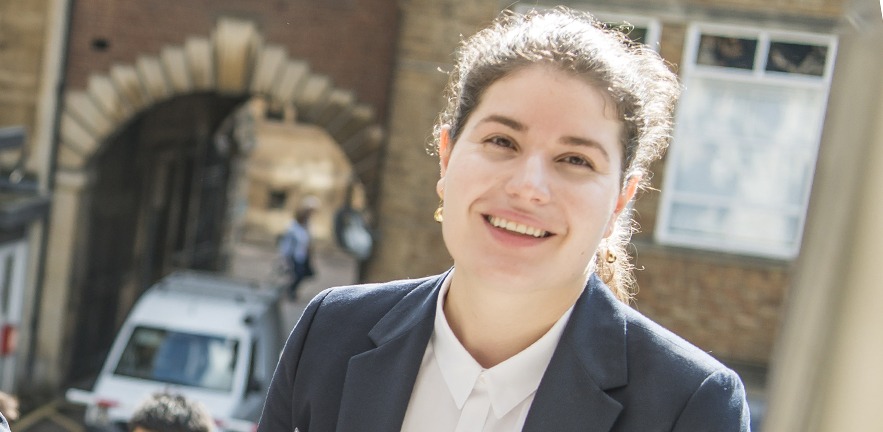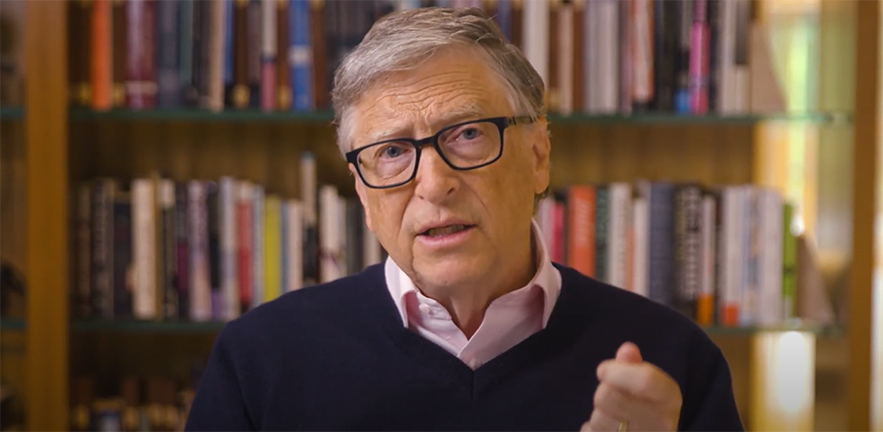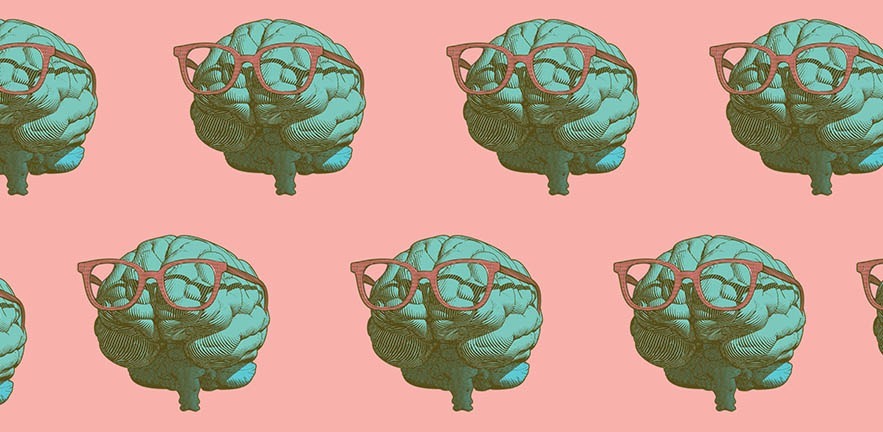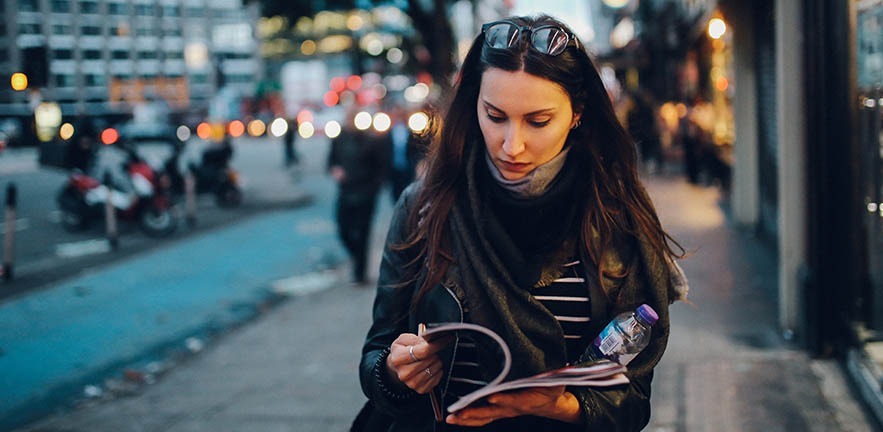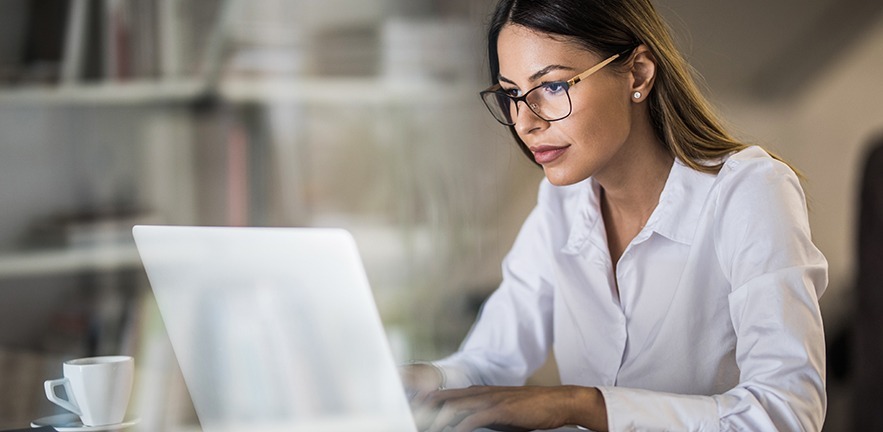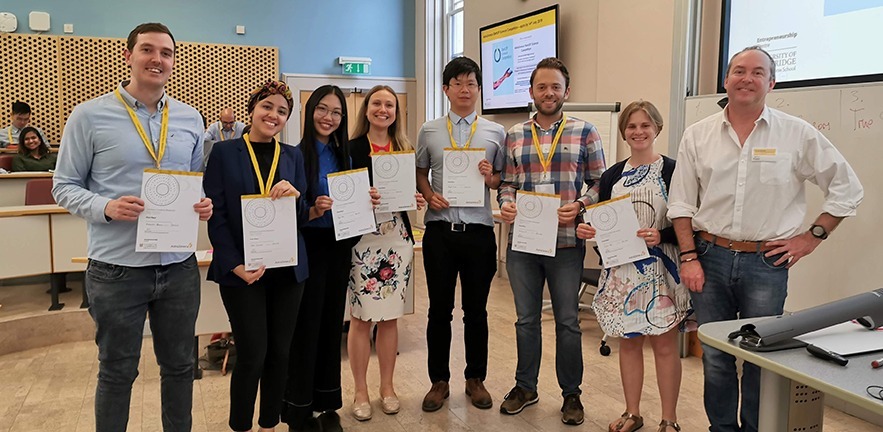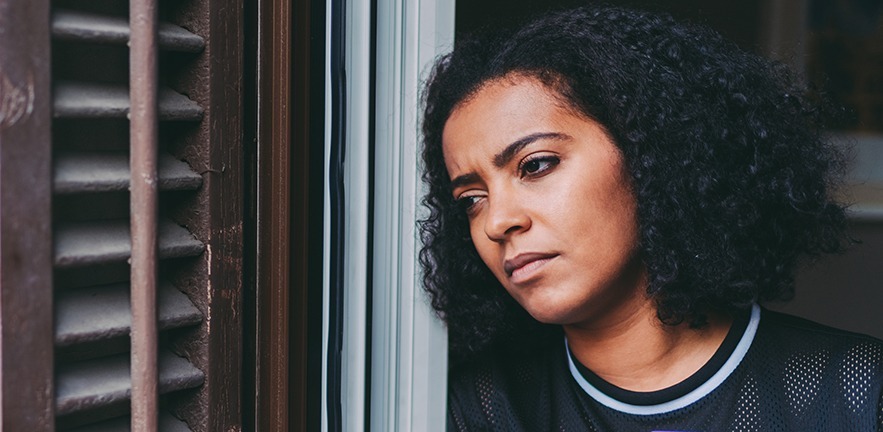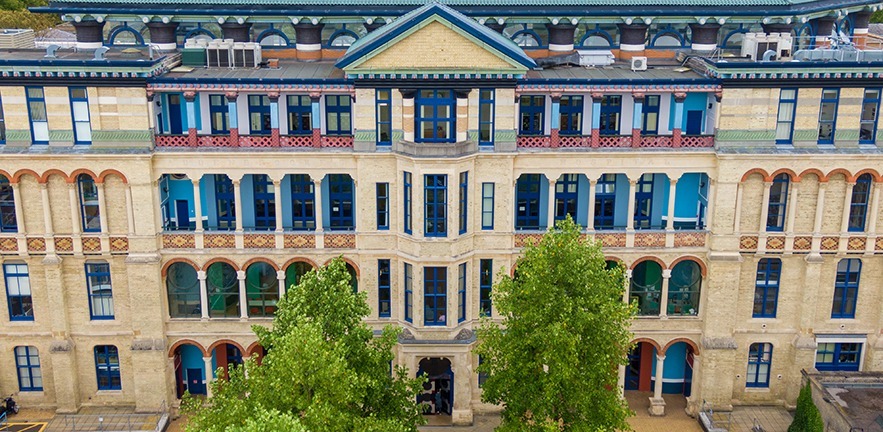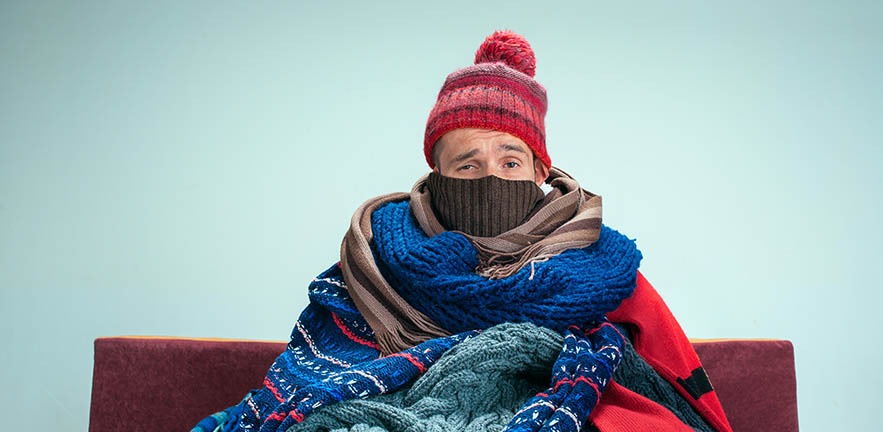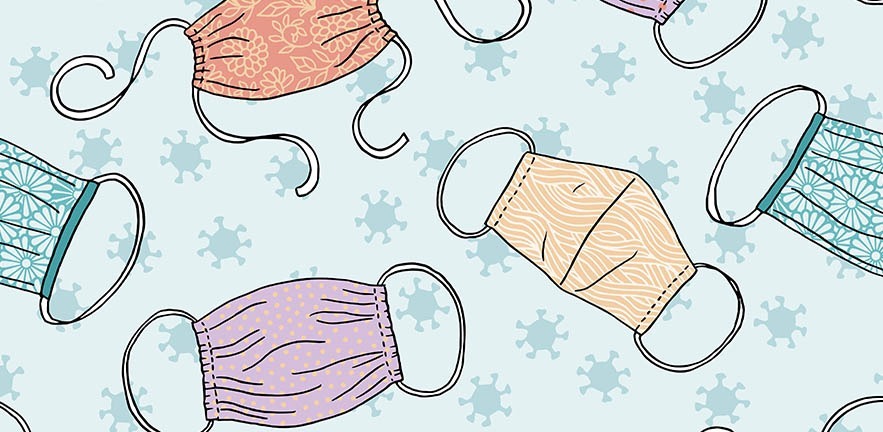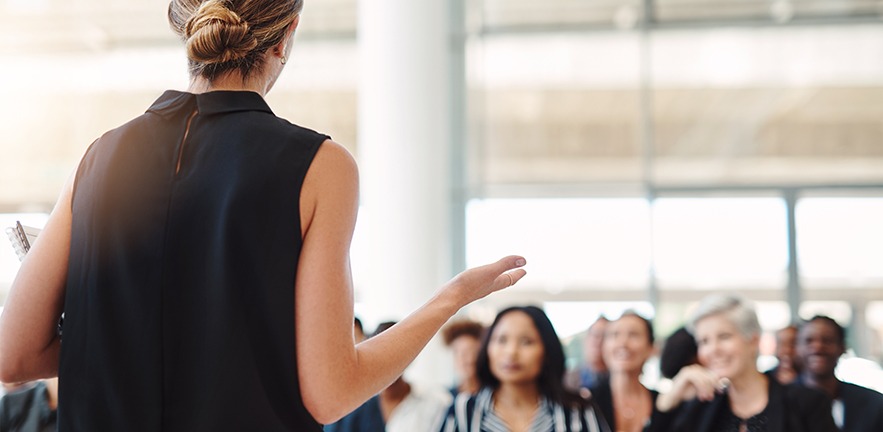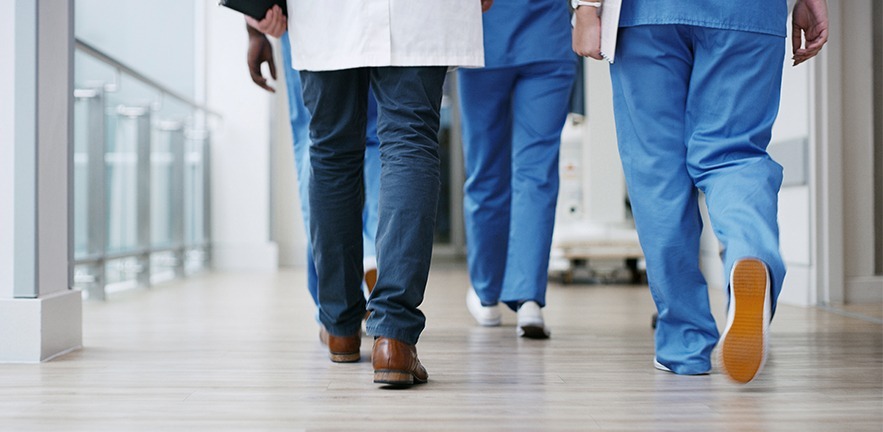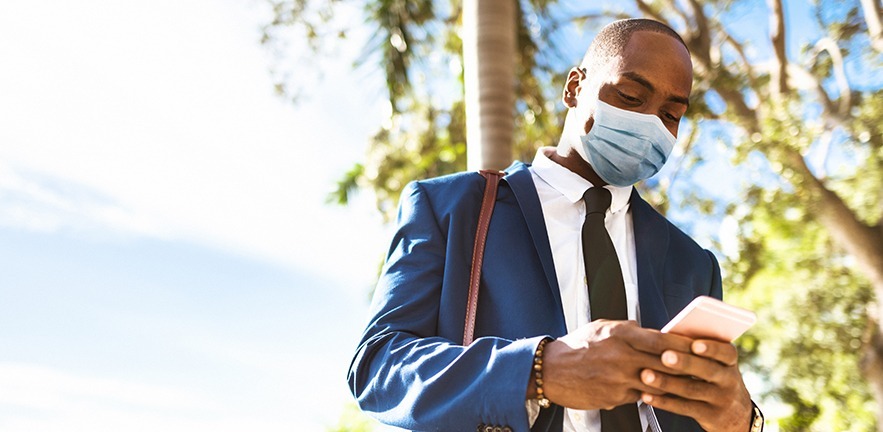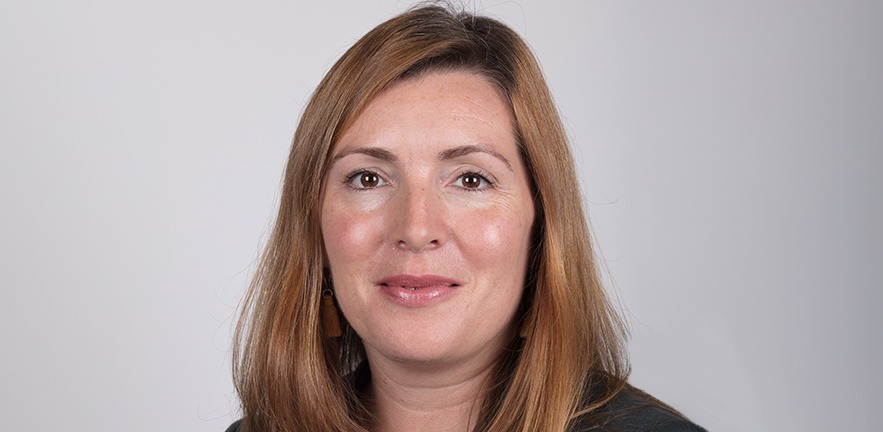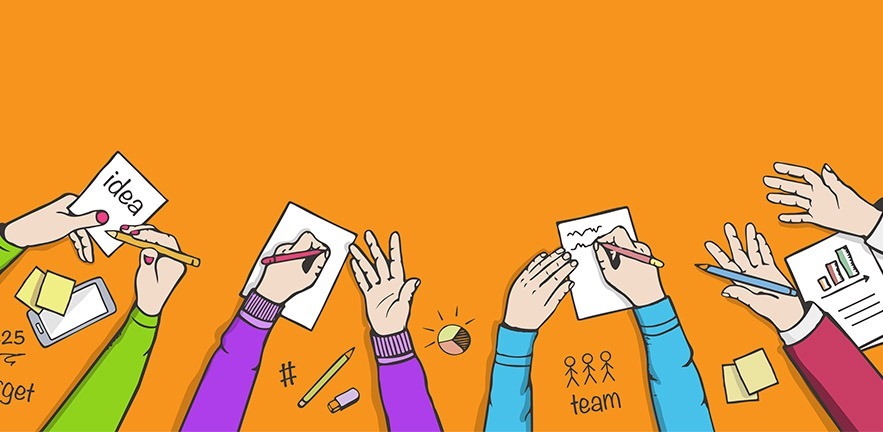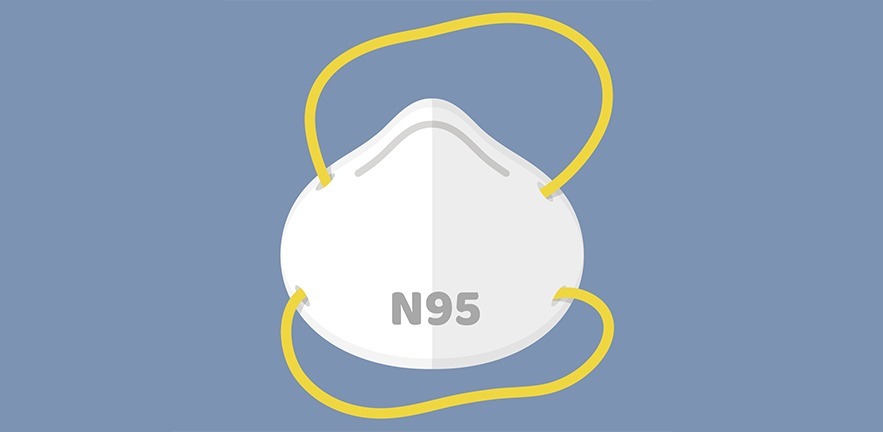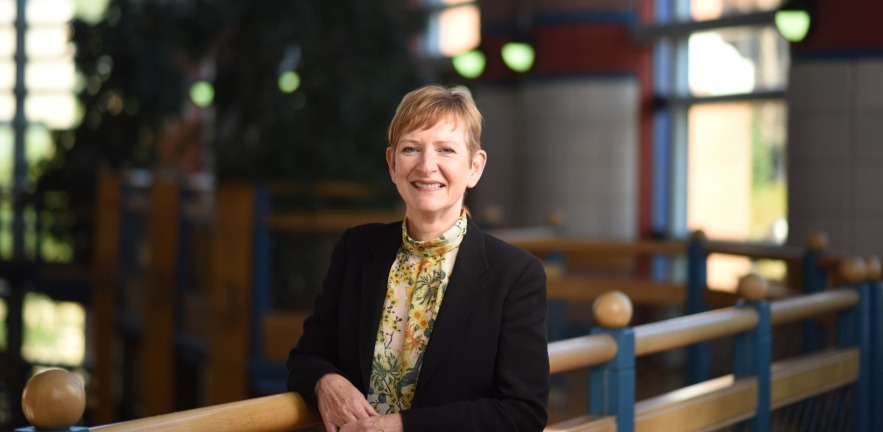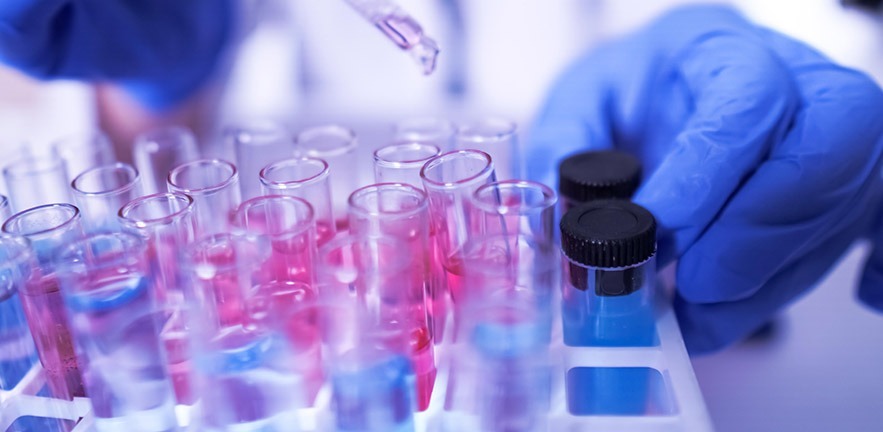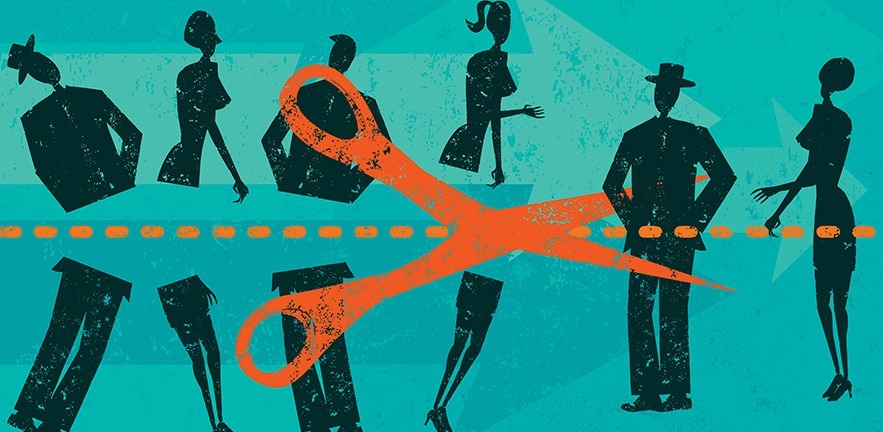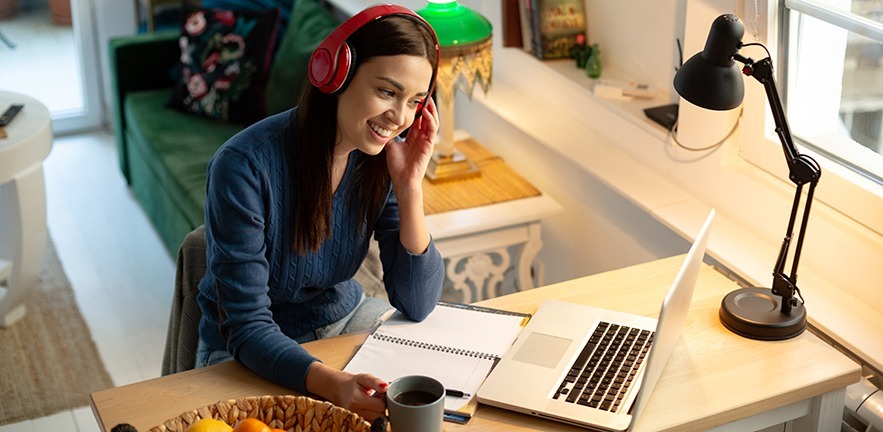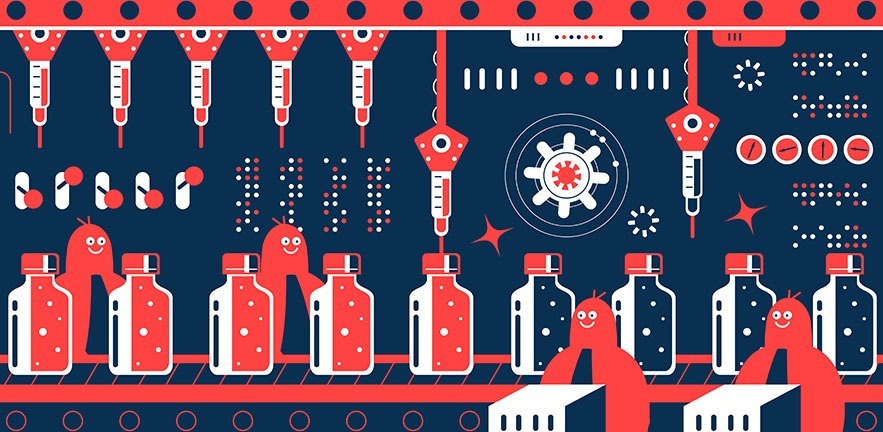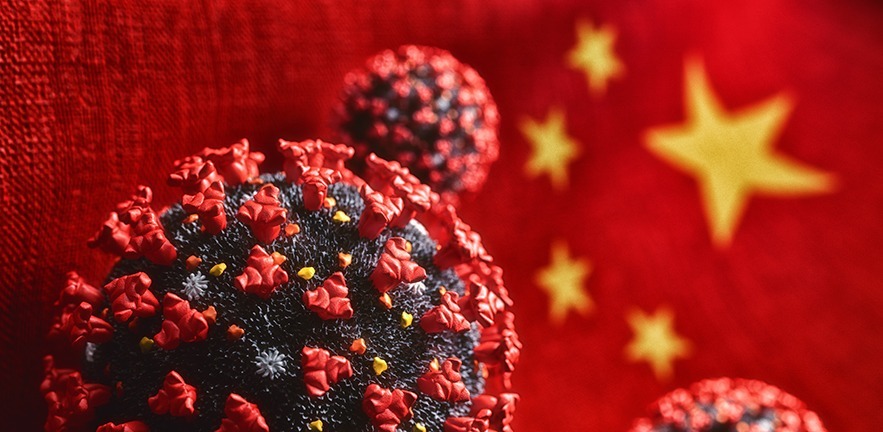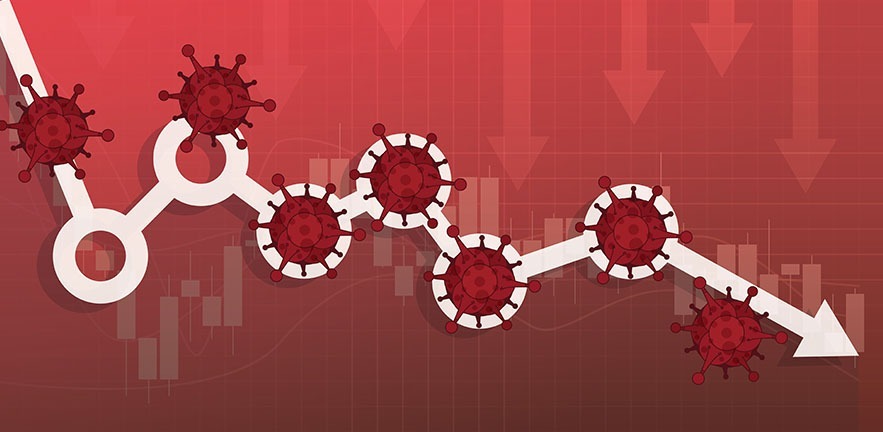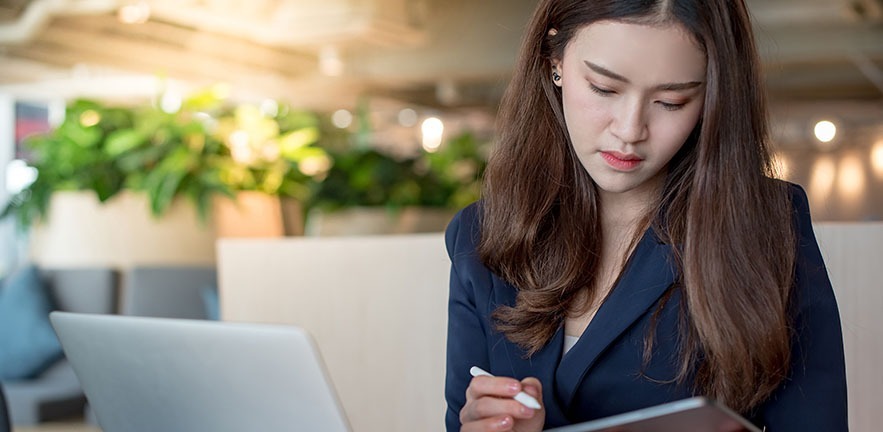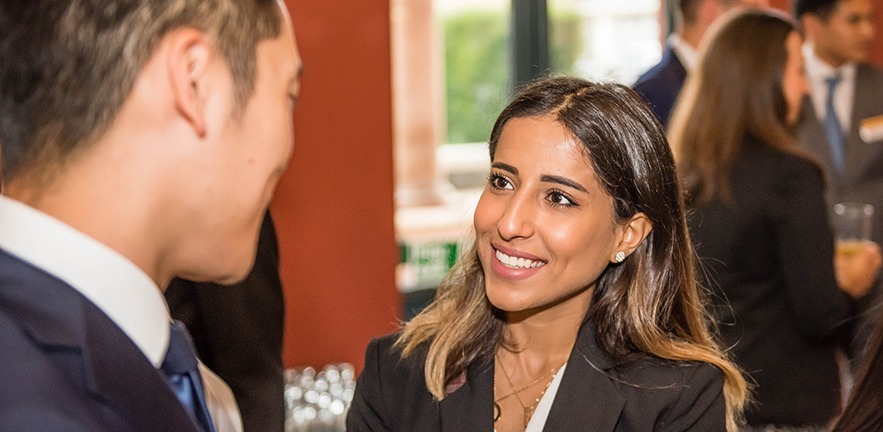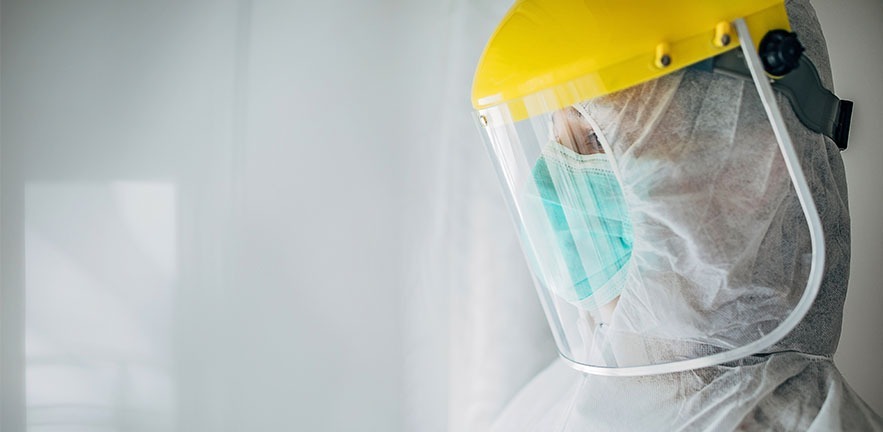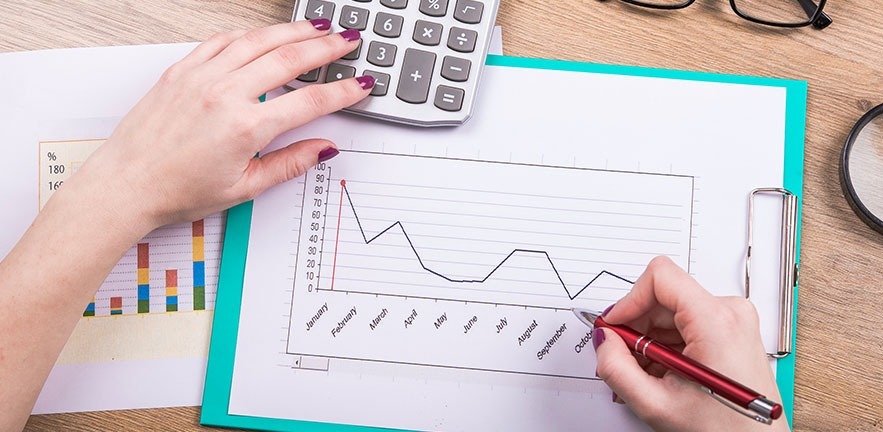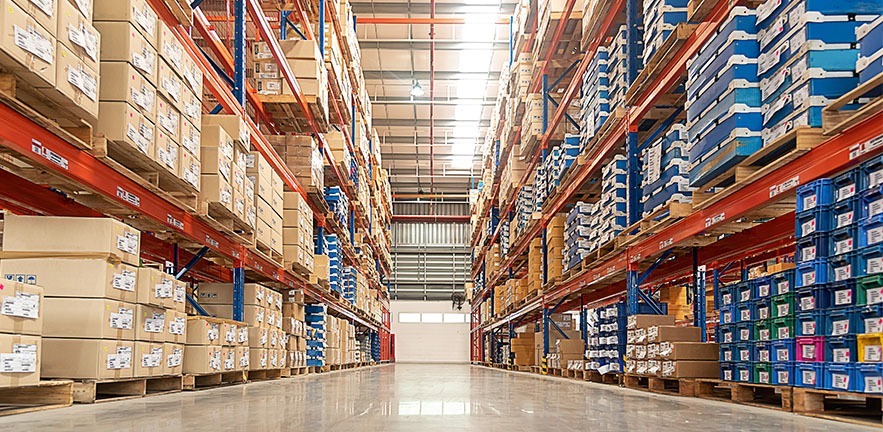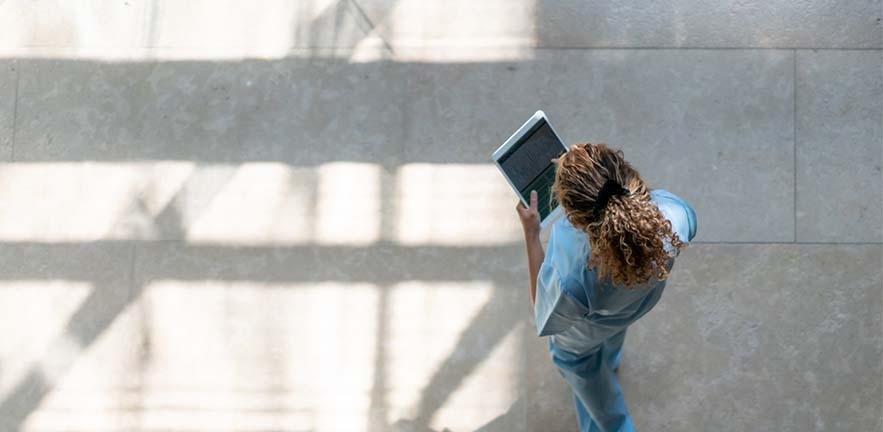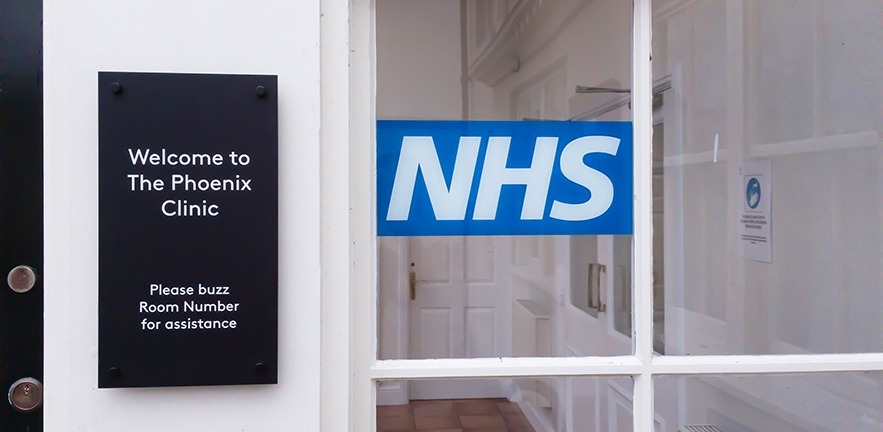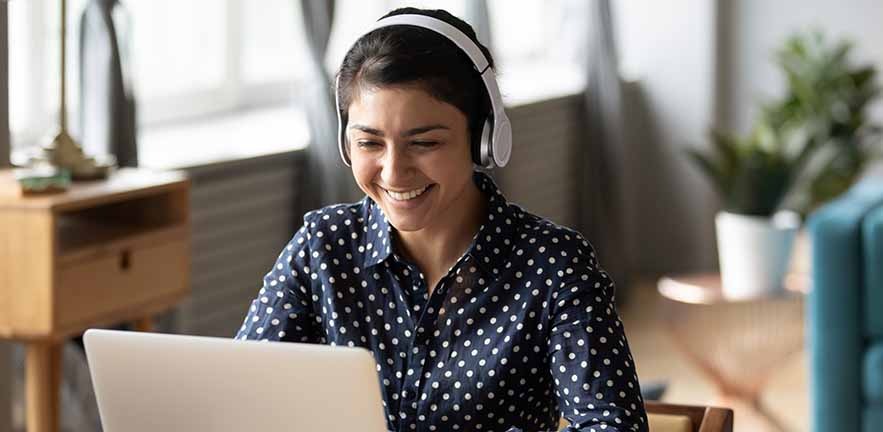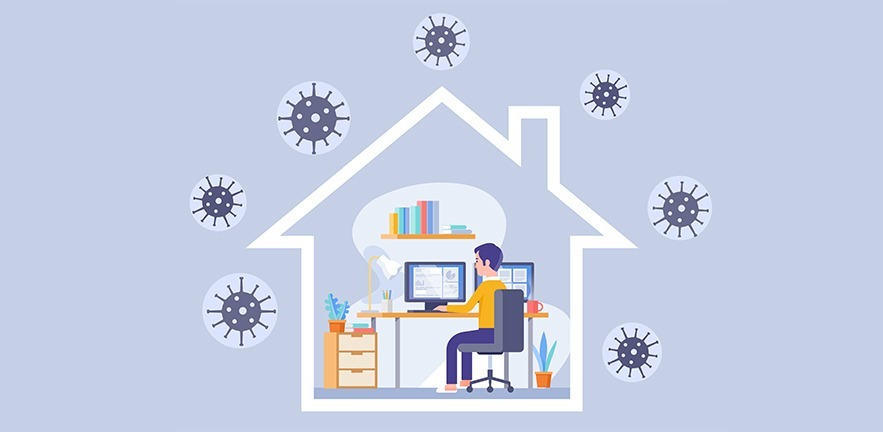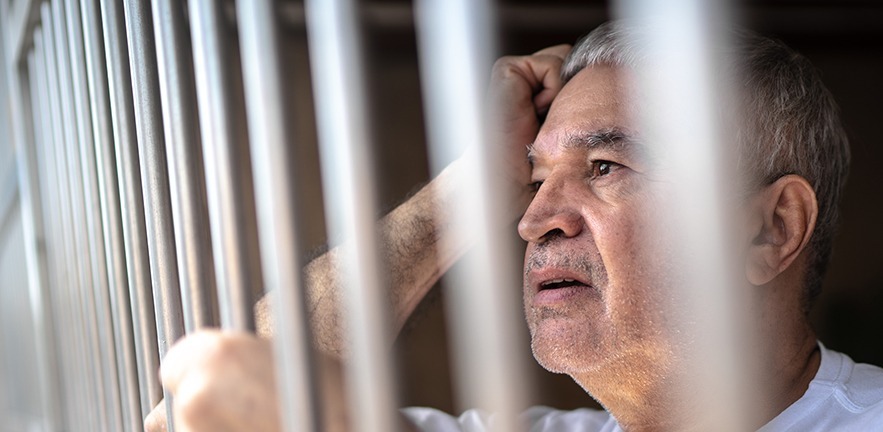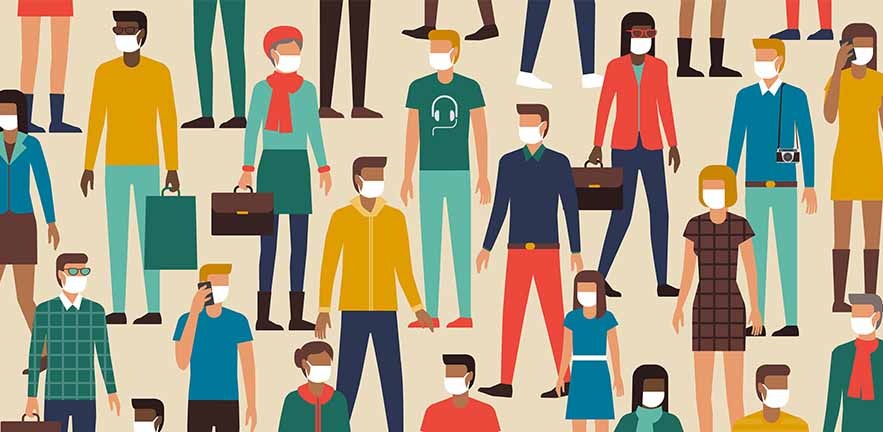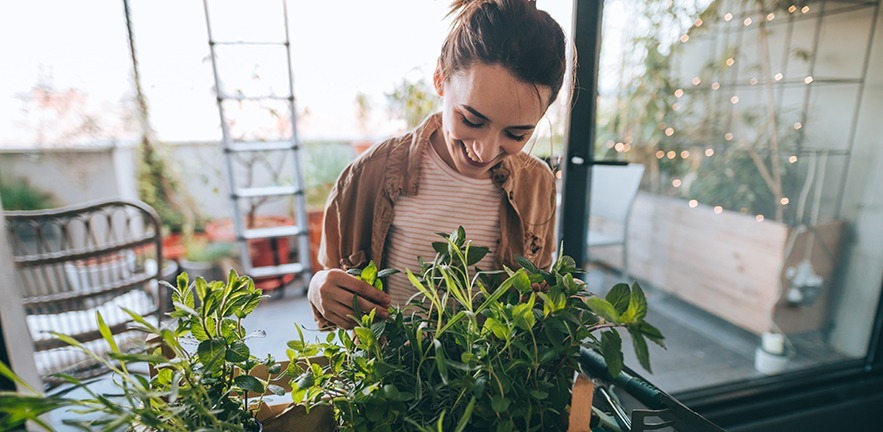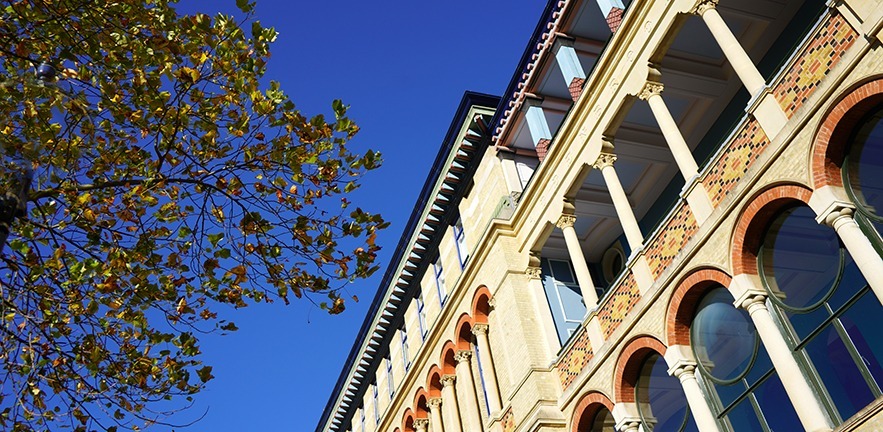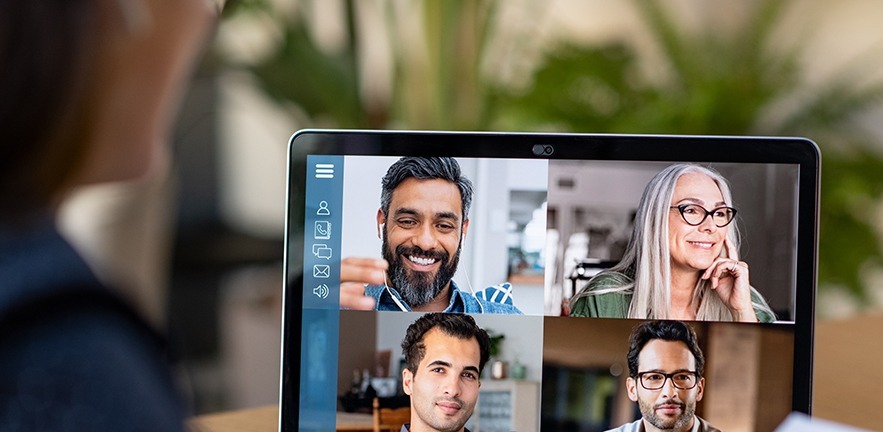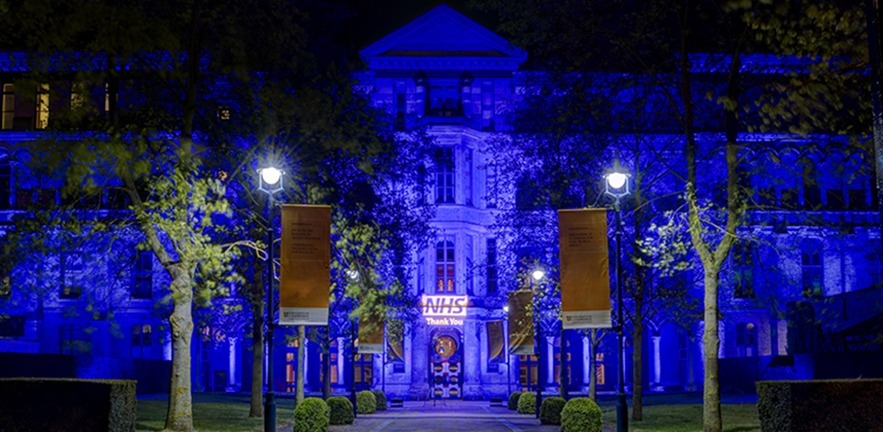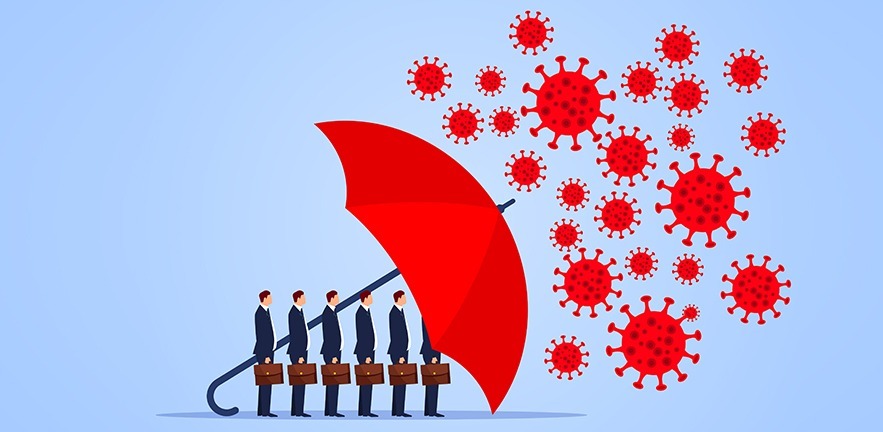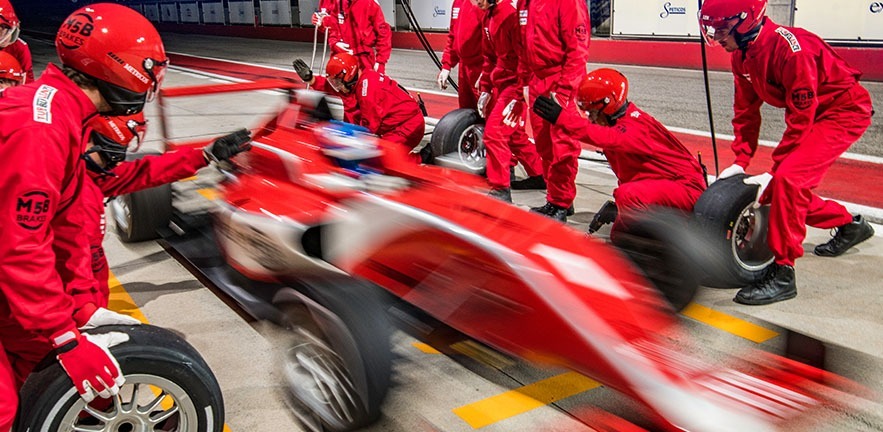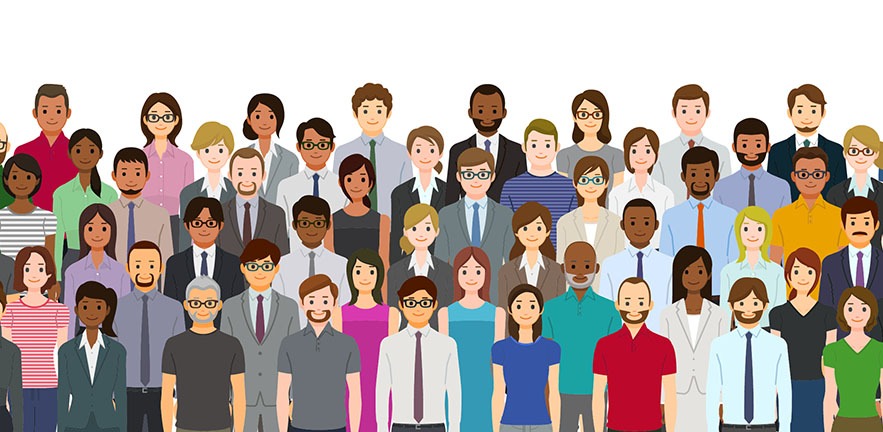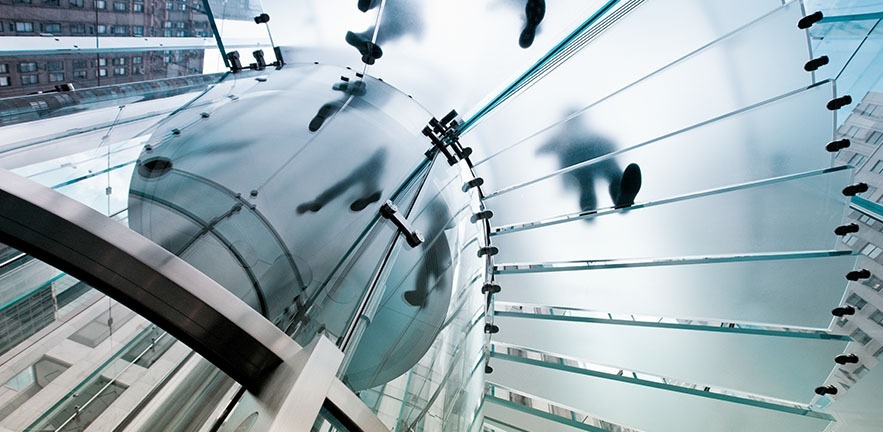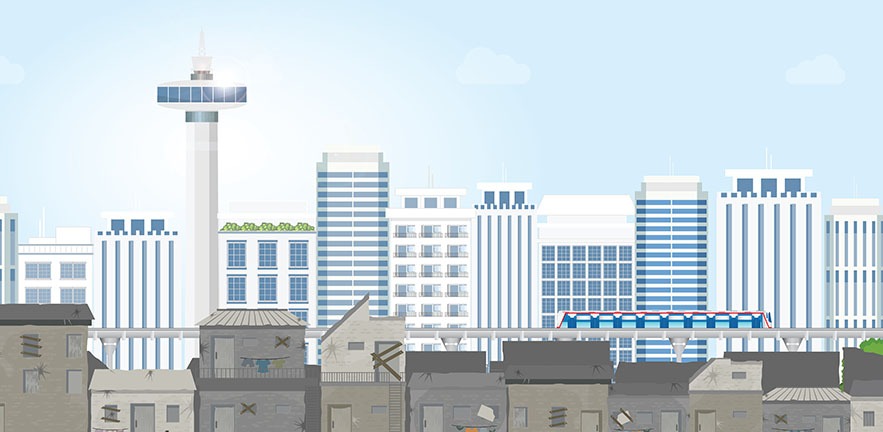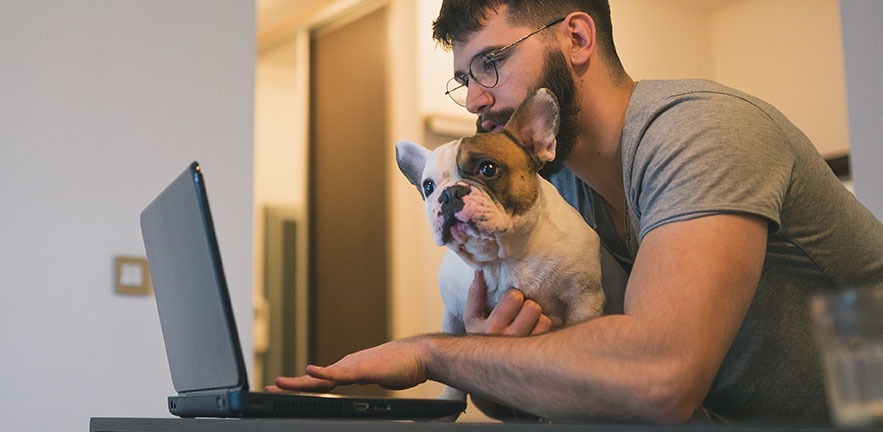Expert insight and analysis from Cambridge Judge Business School.
Leadership and organisational behaviour
How CEO’s compassion protects share prices during a crisis
Companies whose CEOs expressed empathy on conference calls fared better as shares tumbled when the pandemic took hold, finds new study co-authored by Jochen Menges of Cambridge Judge.
Career and personal development
Quitting during the pandemic: what social media can tell us
Examination of Reddit posts shows link between mental health topics and the Great Resignation during the pandemic, finds study co-authored at Cambridge Judge Business School.
Faculty news
Do remote drug trials work?
When COVID-19 travel restrictions were introduced, it sparked a trend towards remote participation in clinical assessments of new medicines’ safety and efficacy. A new study co-authored at Cambridge Judge Business School outlines a framework to assess when decentralised drug trials provide the greatest value to the system.
Governance, economics and policy
A strong but uneven government response to COVID-19
State power was reasserted during the pandemic but this failed to address geographic disparities, says study co-authored by Michael Kitson of Cambridge Judge Business School.
Career and personal development
Not having it all: why people renounce certain workplace ambitions
A new study co-authored by Dr Thomas Roulet of Cambridge Judge Business School examines the various ways people renounce goals or desires at work – for conformity but also emancipation – in this era of the great resignation.
Career and personal development
From experiential pop-up shops to mission-led business, Work for Good
We meet a Cambridge MBA alumnus juggling it all in the retail sector.
Behavioural economics
How the pandemic affected anti-social behaviour
Those more intensely exposed to COVID-19 (coronavirus) became more anti-social, likely due to mental health deterioration, finds study co-authored at Cambridge Judge Business School based on the pandemic’s outbreak in China.
Studies on COVID-19 modelling by Paul Kattuman and marginalisation by Shahzad Ansari are named runners-up in the annual Responsible Business Education Awards of the Financial Times.
Leadership and organisational behaviour
Employee wellbeing: how measurement is key to improvement
A new toolkit that provides a framework to measure employee wellbeing is launched by Highsight Analytics and the University of Cambridge Psychometrics Centre at Cambridge Judge Business School.
Research centre news
Cambridge Judge honourees in prestigious University of Cambridge awards
Stefan Scholtes of Cambridge Judge Business School wins Collaboration Award in the Vice Chancellor’s Awards for Research Impact and Engagement for work on the COVID pandemic. Khal Soufani of Cambridge Judge is runner-up in Established Academic award for work in circular economy.
A new book from the Cambridge Centre for Alternative Finance, Asian Development Bank Institute and Asian Development Bank looks at how the pandemic accelerated digital technology in finance.
More mindful employees perceive their job as less boring and are less likely to quit, says a study co-authored by Jochen Menges of Cambridge Judge Business School.
Since the onset of the COVID-19 (coronavirus) pandemic, the International Monetary Fund (IMF) has reasserted its role as the world’s leading financial firefighter.
The Centre for Strategic Philanthropy (CSP) recently celebrated its second anniversary, solidifying its role as a hub for research and convening on philanthropy in global growth markets.
Behavioural economics
Finding love and worth at work
Amelia Dunlop, Chief Experience Officer at Deloitte Digital, bestselling author and Cambridge Judge Business School alumna (MBA 2003), shares her advice on the ‘worthiness gap’.
New report reveals the impact of the global pandemic on fintech firms and details potential of the industry to improve financial inclusion.
Study co-authored by Feryal Erhun and Houyuan Jiang of Cambridge Judge Business School finds that the pandemic has delayed lifesaving treatment for thousands of people with severe aortic stenosis.
Governance, economics and policy
Four challenges the world economy faces post COVID-19
Former Governor of the Bank of England Lord King discusses his views on challenges facing the world economy following COVID-19 in the latest Pembroke Speaker Series lecture, organised by Pembroke College, Cambridge, and Cambridge Judge Business School.
Qureight, a clinical data analytics company supported by the Accelerate Cambridge programme at Cambridge Judge Business School, just raised £1.5m in seed funding.
Foodpanda managing director and Cambridge Judge Business School alumnus tells of the changing e-commerce market in Asia, and how his Executive MBA helped him to navigate the new territories uncovered in a growing market.
Blended finance is an approach to global development co-operation that recognises that private capital has a pivotal role to play in meeting the Sustainable Development Goals (SDGs) for 2030.
Article by Cambridge Judge lecturer and MBA alumnus Hamza Mudassir (MBA 2012) on how the world ran out of semiconductors was third most-read University of Cambridge article in The Conversation in 2021.
Pandemic offers a unique opportunity for ballet companies to innovate, says paper by Megan Jones, an Executive MBA graduate of Cambridge Judge.
Misc news
Scratching the surface
Meal kit company Gousto, founded by Cambridge Judge Business School alumnus Timo Boldt, reaches ‘unicorn’ $1bn valuation and says the boom in online food will continue after the pandemic.
The importance of internship programmes has certainly never been higher. The global pandemic has altered the employment landscape immeasurably both from the perspective of employers and candidates.
Future of work
Remote working mindset
Are people more productive and emotionally positive working remotely? A new study co-authored by Dr Jochen Menges of Cambridge Judge Business School finds the answer may be in the mindset of employees.
Insight
Board reform
Improving board effectiveness requires a focus on the relationship aspect of boards as well as their structure, says a new book by Dr Philip Stiles of Cambridge Judge.
Marketing
Looking at 2022
Cambridge Judge Business School faculty offer their insights and opinions on what to expect in 2022 in areas ranging from climate change to workplace technology to business education.
As cash giving continues to decline and card payments have quickly dominated the way we spend, we find ourselves tapping our way through cafes, shops, and even train stations with less of us carrying a jingling pocket full of change.
Mirthy, a social startup supported by the Cambridge Social Ventures programme at Cambridge Judge Business School, aims to bring joy to millions of older people.
Insight
Shared mission
The UK's rapid production of ventilators to fight COVID-19 holds key lessons for tackling grand societal challenges like poverty and climate change, says a new study co-authored by Peter Williamson of Cambridge Judge.
The 2008-2010 financial crisis and the COVID-19 (coronavirus) pandemic have highlighted the importance of an orderly insolvency resolution mechanism (hereafter IRM).
Insight
Empathetic leadership
An essay on how digital natives may be best equipped as managers to respond to crises, written by Cambridge Judge PhD candidate Ariel de Fauconberg, is a Top-10 finalist in the student category of the Peter Drucker Challenge contest.
Insight
From ‘R rate’ to ‘nowcasts’
A farewell to R: study by University of Cambridge researchers suggests that "nowcasts" based on a new time series model are more effective in tracking later-stage pandemics than the traditional 'R rate' used during an outbreak.
'Embrace your inner Sharer': leaders should not be afraid to talk about fears and anxieties, says a Harvard Business Review article co-authored by Jochen Menges of Cambridge Judge Business School.
In the post-pandemic world, employers can differentiate their brands through flexible work policies, says Thomas Roulet of Cambridge Judge Business School.
Insight
Reputation
A summary of recent research and other initiatives from Cambridge Judge Business School.
Each of our research centres has unique ways to engage with non-academic organisations and, through that, to generate real world impact. This month we decided to share with you the work of the Centre for India & Global Business at Cambridge Judge Business School (CJBS).
Insight
Carryover co-operation
Sir Mene Pangalos of AstraZeneca, in a Cambridge Judge interview, urges continuation of the ‘exceptional’ collaboration between industry, academia, government and regulators that led to rapid development of COVID-19 vaccines.
Joint study between Cambridge Centre for Alternative Finance (CCAF) at Cambridge Judge Business School, University of Cambridge, and the World Bank Group to provide essential data to assess the medium-to-longer term impact of the global pandemic on fintech firms worldwide.
The response to coronavirus differed between East and West, says Professor Zhang Wenhong in an article in the China Report of Cambridge Judge Business School.
Cambridge Executive MBA alumni and a Cambridge MBA alumna have come together to form New Vision International Group (NVIG) – a platform offering investment advice to Chinese high net worth individuals (HNWIs).
Insight
Very unwise
Ending all COVID-19 restrictions is a reckless decision by the UK government at this critical time, says Professor Christoph Loch.
Businesses should use the COVID-19 pandemic to pivot to better service rather than making excuses, says Jaideep Prabhu, Professor of Marketing at Cambridge Judge Business School.
The Cambridge Centre for Alternative Finance (CCAF) at the University of Cambridge Judge Business School today published its 2nd Global Alternative Finance Market Benchmarking Report which found growth in total alternative finance volume of 27% (excluding China) from 2018 to 2020 to US$113 billion.
Faculty news
Clear impact
Cambridge Judge faculty members Stefan Scholtes and Robert Wardrop are named recipients of the 2021 Sandra Dawson Research Impact Award.
Each of our research centres has unique ways to engage with non-academic organisations and, through that, to generate real world impact. This month we decided to share with you the work of the Centre for Strategic Philanthropy at Cambridge Judge Business School.
We reflect on Global Philanthropic's recent Talking Philanthropy forum, co-hosted with the Centre for Strategic Philanthropy at Cambridge Judge Business School and the Lee Juan Yew School of Public Policy, and take a look at the 3 individuals who won special awards for their charitable endeavours.
Finance and accounting
Janet Mui: making sense of economic development and facing the future
As we launch the 2021 Wo+Men's Leadership Centre Annual Conference, we caught up with MBA alumna Janet Mui, who is a speaker on the Equity, Diversity and Inclusion panel at this year's conference.
Each of our research centres has unique ways to engage with non-academic organisations and, through that, to generate real world impact. This month we decided to share with you the work of the Centre for Risk Studies at Cambridge Judge Business School.
News
Crisis in India
An MBA student-led initiative, Oxbridge Oxygenerates, seeks to raise funds to save lives in India during the COVID-19 pandemic by mentoring donors about business education.
A new CJBS COVID-19 Tracker for India, developed by Cambridge Judge Business School and the National Institute of Economic and Social Research in India working with Health Systems Transformation Platform in India, provides forecasts of the pandemic's trajectory based on a recently developed model.
Leadership and organisational behaviour
Making a difference
The pandemic has created greater empathy and understanding among business leaders to tackle society's big challenges, Robin L. Washington says in the latest edition of the CJBS Perspectives interview series on leadership.
Insight
Public to private
The results of privatisation, back in the public eye due to the pandemic, often depend on the type of industry and its competitive framework, says study co-authored by Dr Kamal Munir of Cambridge Judge.
The Centre’s launch could not have been timelier as it coincided with the onset of the COVID-19 (coronavirus) pandemic and subsequent renewed interest in philanthropy – notably as a source of rapid response capital – as a means of bringing innovation to entrenched socio-economic global challenges.
Each of our research centres has unique ways to engage with non-academic organisations and, through that, to generate real world impact. This month we are sharing the work of the Cambridge Centre for Alternative Finance at Cambridge Judge Business School.
Companies need to revisit their values and identify their top cultural challenges in ensuring employee wellbeing in the post-coronavirus world, says an article in MIT Sloan Management Review co-authored by Dr Thomas Roulet of Cambridge Judge Business School.
There is no doubt that the COVID-19 (coronavirus) pandemic has been devastating for individuals and businesses all around the world. But could there also be an upside to all that disruption? After all: A crisis is too good an opportunity to waste.
Insight
‘Avalanche’ of innovation
Higher education faces shakeup over the next 20 years due to technological, demographic and social shifts, Dean Christoph Loch of Cambridge Judge says in the latest China Report from the China Advisory Council of Cambridge Judge.
Programme news
Cambridge Judge students making COVID-19 community impact
As another chapter in the Cambridge Judge against COVID-19 legacy concludes, we look back on the outcomes and experience for both student consultants and clients.
Four entrepreneurs connected to Cambridge Judge Business School have been awarded the Innovate UK Women in Innovation award. This year 40 female entrepreneurs were selected for the Awards and will receive a one-year tailored package of financial support and mentoring.
Dr Kamiar Mohaddes,, University Senior Lecturer in Economics & Policy at Cambridge Judge Business School, writes that although uncertainty is a natural part of any entrepreneur’s journey, how a business deals with this uncertainty is often what separates a good entrepreneur from an average one.
Insight
Healthcare costs
Moving elective procedures out of general hospitals can increase quality and reduce cost of emergency services, says 10-year study of all English NHS hospitals co-authored by Professor Stefan Scholtes of Cambridge Judge Business School.
Misc news
Philanthropic changes
An article in the Stanford Social Innovation Review by Clare Woodcraft and Kamal Munir of the Centre for Strategic Philanthropy at Cambridge Judge Business School outlines findings of a pandemic-induced shift in the Global North-Global South philanthropic power balance.
Insight
No easy fix
The UK faces a 30-year challenge to level up society through building 'critical' mass to make forgotten communities thrive again, Alistair Darling tells the Pembroke Speaker Series @ Cambridge Judge.
Insight
Deglobalisation myths
Pandemic-prodded predictions of relocalising supply chains and reshoring production 'grossly exaggerate' what will actually happen in practice, writes Peter Williamson of Cambridge Judge Business School.
Misc news
Predicting impact
A year after UK lockdown, the Cambridge Centre for Risk Studies calls for probability-based scenario approach to forecasting crises due to unreliability of well-established models.
Insight
Rescue plan
Joe Biden’s US$1.9 trillion stimulus won’t be enough to reignite world economy on its own, says Michael Kitson of Cambridge Judge Business School.
The REACH Ely project is collecting audit data about church buildings from the church communities in the Diocese of Ely.
Misc news
Rite of passage
Organisations can learn from anthropology in using the pandemic as a ‘liminal’ experience or time of trial, says Harvard Business Review article co-authored by Professor Jennifer Howard-Grenville.
Professor Jaideep Prabhu and Dr Eden Yin discuss how the events of 2020 have not only changed the world, but also the world of marketing.
Misc news
Long-term returns
Following high returns in the 1980s and 1990s, real equity returns have since been below historical averages despite pandemic recovery, says Credit Suisse Yearbook co-authored by Professor Elroy Dimson from Cambridge Judge Business School.
Insight
Governmental response
Fiscal measures totalling $14 trillion have proved effective in mitigating the pandemic's economic effects including in emerging markets, says paper co-authored by Dr Kamiar Mohaddes of Cambridge Judge.
Misc news
Stock sales
Three US senators cite research by Professor Alan Jagolinzer of Cambridge Judge Business School in urging SEC reform of insider trading laws.
Future of work
Entrepreneurial law
James Goodnow, a student on the Master of Studies in Entrepreneurship programme at Cambridge Judge, says the legal industry needs to take innovation seriously or get left behind.
Misc news
Inactivating viruses
CodiKoat venture supported by the Accelerate Cambridge programme at Cambridge Judge Business School is awarded £325,000 in UK government grants to help further develop its nanoparticle coating technology that kills viruses on any surface.
Insight
AI and COVID-19
Five important challenges in dealing with the coronavirus crisis can be addressed through machine learning and artificial intelligence, says article co-authored by Professor Stefan Scholtes of Cambridge Judge.
Insight
Tracking pandemics
New study co-authored by Dr Paul Kattuman of Cambridge Judge develops new time series models to predict epidemic trajectories before they reach peak.
Insight
Governing catastrophes
Re-learning how to manage risk can be a template for the future governance of crises, say academics from the Centre for Business Research at Cambridge Judge Business School.
Misc news
For the people
New book by Professor Jaideep Prabhu of Cambridge Judge Business School – How Should a Government Be? – outlines the state's role in the 21st Century.
Misc news
Queen’s honours
Cambridge Judge alumnus Dr Jonathan Pearce awarded an MBE for Services to COVID-19 research.
Cambridge MBA students offer pro-bono consulting services to those businesses still suffering the effects of the pandemic and the resulting economic crisis.
Misc news
Social impact
People and firms affiliated with Cambridge Centre for Social Innovation are honoured by the social enterprise community.
News
Focus on wellbeing
The coronavirus crisis provides a 'unique opportunity' to focus on health at the workplace, says Professor Dame Carol Black.
News
An MBA star award
A Cambridge MBA alumna has been shortlisted for the finalists of Women of the Future Awards 2020 in the UK. Srishti Warman (MBA 2019) has been shortlisted in the MBA Star category.
Misc news
Global challenges
During the inaugural edition of a speaker series from Pembroke College and Cambridge Judge Business School, Shriti Vadera discussed some of the significant challenges facing governments and business in light of COVID-19 and longer term structural changes in economies and societies.
Misc news
Timely advice
Working from home saves commuting time but there are ways to use that extra time more wisely, says Harvard Business Review article co-authored by Dr Jochen Menges of Cambridge Judge Business School.
In this video, Nandan and Rohini Nilekani reflect on their approach to strategic philanthropy,
As we get ready for another year of impact and engagement at Cambridge Judge Business School (CJBS), we would like to celebrate the difficult year behind us with a great story of impact and engagement that came from our 2019 MBA cohort.
Misc news
Call for SEC action
Article co-authored by Professor Alan Jagolinzer of Cambridge Judge calls for Securities and Exchange Commission to reform 'pre-planned' stock sale rules.
Leadership and organisational behaviour
Top 15 reads of 2020
The news and insight section of Cambridge Judge Business School's website attracts audiences with eclectic interests ranging from business to healthcare to the arts. In 2020, attention was focused on articles related to the COVID-19 pandemic.
Social impact
Improving philanthropy
COVID-19 pandemic shows the need to address the North-South power imbalance in global philanthropy, says report by the Centre for Strategic Philanthropy at the University of Cambridge Judge Business School.
Insight
A messy story
Cambridge Judge Business School MBA alumnus Ankur Bisen writes an award-winning book about the 'messy story' of sanitation in his home country of India.
Misc news
Conflicts of interest
Financial incentives linked to unconscious bias may have driven leaders' pandemic decisions, says an article in Scientific American by Professor Sunita Sah of Cambridge Judge Business School.
The Cambridge MBA entrepreneurs embracing change in a cold COVID-19 climate.
How an MBA gives you a platform to tackle the COVID-19 crisis head on.
A global study jointly authored by the Cambridge Centre for Alternative Finance, The World Bank and The World Economic Forum reveals 12 out of 13 FinTech sectors have grown during the first half of 2020 compared to the same period in 2019. But that growth is uneven and firms are facing significant headwinds in operations and fundraising.
Insight
COVID-19 economic impact
The coronavirus pandemic will likely reduce real world GDP by 3% by the end of 2021 below pre-crisis predictions, says new paper co-authored by Kamiar Mohaddes of Cambridge Judge.
In a recent article for The Conversation Dr Thomas Roulet, University Senior Lecturer in Organisation Theory at Cambridge Judge Business School, discusses how best to combat conspiracy theories.
Hamza Mudassir, Visiting Fellow in Strategy at Cambridge Judge Business School, discusses how Disney's restructuring has made it more like Netflix than ever before.
On 12 November, Cambridge Judge Business School co-organised – with the Global Food Security Initiative/EIT Food and the School of Technology – a panel for Cambridge Zero's Climate Change Festival 2020 to discuss what can be done to increase the resilience and sustainability of food systems around the world.
Misc news
Café sustainability
Footprints Café, a social venture supported by Cambridge Judge Business School, is included in the Lonely Planet Best in Travel List 2021 for its focus on community.
The Executive Director of the Centre for Strategic Philanthropy (CSP), Clare Woodcraft participated in a discussion hosted by the Nama Women Advancement Establishment, a leading organisation on women's empowerment in the UAE and Save the Children, addressing the topic of Local Voices: Creating an Equitable World for Girls.
Misc news
Frugal innovation and COVID-19
Reframing, reprioritising and repurposing has come to the fore during the coronavirus pandemic crisis, say Professor Jaideep Prabhu and Viren Lall.
As well as the all-encompassing study and careers activities on the Cambridge MBA, the unique experience of being a member of the University of Cambridge and one of the 31 Colleges is an enriching part of the year.
Insight
Leadership lessons: biofuels
Karl W. Feilder of biofuels producer Neutral Fuels talks to Dr David Reiner of Cambridge Judge Business School about sustainability and turning cooking oil to fuel.
Insight
Sustainability focus
The Cambridge Zero Climate Change Festival features experts including Kamiar Mohaddes and Khal Soufani of Cambridge Judge Business School.
The growth in emerging market philanthropy could not be occurring at a more critical time. Government budgets are coming under ever increasing pressure from the pandemic and the global downturn. Badr Jafar, the Founding Patron of the Centre for Strategic Philanthropy, explains the role philanthropy has in bridging the annual funding gap to meet SDGs in an interview with CNBC Africa.
Joint study by The World Bank and the Cambridge Centre For Alternative Finance highlights accelerated pace of regulatory innovation during COVID-19.
Insight
‘Underwhelming’ response
Despite G20 pledge to do "whatever it takes", the IMF has offered only 'trivial' new funding toward a $2.5 trillion pandemic financing gap in developing countries, says new article co-authored at Cambridge Judge Business School.
The creative arts face a decade of recovery without strong leadership and talent retention. The Cambridge MBA is creating a fresh pipeline of leaders to lift the industry out of its COVID-19 slump.
Pandemic will have 'profound' impact on philanthropy through greater collaboration, Bill Gates says in interview with Badr Jafar, founding patron of the Centre for Strategic Philanthropy at Cambridge Judge Business School.
Leadership and organisational behaviour
A smoother transition
Ten considerations to engage people and communities in the transition phase from government measures to combat COVID-19 from Professor Sunita Sah.
Insight
Icebergs and elbows
A new paper by Shahzad (Shaz) Ansari, Professor of Strategy & Innovation at Cambridge Judge Business School, argues that such seemingly mundane activities are the hidden work that undergird more visible institutions, leaders and innovators.
Insight
Pharma shift
The pharmaceutical industry's focus on procedures and dealmaking could change significantly in this uncertain period, five Cambridge Executive MBA graduates say in a webinar for the What's Next? How to Survive and Thrive in a Post COVID-19 World series.
Insight
Remote culture
Jennifer Howard-Grenville says maintaining organisational culture while working from home involves far more than just stating company values, in a webinar for the What's Next? How to Survive and Thrive in a Post COVID-19 World series.
Insight
Think about how we think
Pandemic shows that organisational scholars need to see the world as systems of interdependent activity rather than individual entities, says Professor Jennifer Howard-Grenville.
News
Shaping the future
A Visiting Fellow at Cambridge Judge Business School, Hamza Mudassir, features as one of 137 people on the cover of the latest edition of Entrepreneur magazine in the US devoted to entrepreneurial ingenuity at this unprecedented time. Hamza is a Visiting Fellow in Strategy and an alumnus (MBA 2012) of Cambridge Judge.
Insight
COVID-19 and SME growth
How are small- and medium-sized enterprises (SMEs) tackling new challenges posed by COVID-19 (coronavirus)?
Insight
More with less
Coronavirus pandemic has boosted frugal innovation around the world in both developed and developing countries, says Professor Jaideep Prabhu, in a webinar for the What's Next? How to Survive and Thrive in a Post COVID-19 World series.
The second annual Cambridge Social Innovation Prize, awarded by Trinity Hall and the Cambridge Centre for Social Innovation at Cambridge Judge Business School, to help 4 outstanding social entrepreneurs.
Insight
Regulatory dilemma
Policymakers face a big test on whether to support fintechs given increased competition from big tech and incumbent banks says Dr Robert Wardrop, in a webinar for the What's Next? How to Survive and Thrive in a Post COVID-19 World series.
The ThinkCyber startup co-founded by Cambridge Judge Business School alumnus Tim Ward (PGDE 2016) was awarded a Fast Start UK business disruption grant to further develop its security awareness software Redflags.
Find out how the startup eco-system on the Cambridge MBA and across the Business School exposes entrepreneurs to everything they need to get their ideas off the ground.
Insight
Slow recovery
Dr Kamiar Mohaddes says the pandemic's economic situation is 'really different' from past crises in that the combination of supply, demand, and confidence shocks is unprecedented, in a webinar for the What's Next? How to Survive and Thrive in a Post COVID-19 World series.
Insight
Mental health
People with coronavirus symptoms more likely to have general psychiatric disorders and loneliness, says study co-authored at Cambridge Judge Business School.
The Centre for Strategic Philanthropy has partnered with Caroline Fiennes, the Director of Giving Evidence, to study the response of philanthropy to the COVID-19 crisis.
Insight
Counting issues
Coronavirus deaths and swelling public sector debt share a data-quality problem, writes Dr Marion Boisseau-Sierra, University Lecturer in Accounting at Cambridge Judge.
At Cambridge Judge Business School, we pride ourselves in our commitment to engaging with businesses, policy-makers and civil-society organisations. We believe that knowledge can be a powerful tool to help different players to improve their practices, policies and to develop their thinking. and, in this way, to generate positive social impact. But what does it mean "to engage" for a business school? And how can we keep on engaging as we all adapt to a life with physical distancing?
The Centre for Strategic Philanthropy is producing an industry report that will assess initial responses to the COVID-19 (coronavirus) crisis by the global philanthropic community with a focus on emerging markets. It will seek to understand how philanthropy is rising to the challenge and what, if any, measures are being taken, and why. It will aim to understand if there is any shift towards specific geographies (e.g. low-income countries) and/or towards specific sectors (e.g. health care) and how this has impacted decision making.
Insight
Flu and coronavirus
The COVID-19 death rate is higher in European countries with a low flu intensity since 2018, says a working paper by Chris Hope of Cambridge Judge Business School.
Insight
Organisational culture matters
There are some key techniques to help an organisation’s culture survive despite staff working remotely, Professor Jennifer Howard-Grenville of Cambridge Judge says in MIT Sloan Management Review.
Insight
Quicker response in a crisis
"Frugal innovation" can help governments respond better to the COVID-19 pandemic, says article co-authored by Professor Jaideep Prabhu in Stanford Social Innovation Review.
How one Cambridge MBA’s experience in 2008 reveals lessons for MBAs of today: for Marina Maslowski Marsat (MBA 2008), embarking on the Cambridge MBA just as the global financial crisis broke in 2008 was a new challenge she hadn't anticipated.
Insight
Management style needs to change
Dr Thomas Roulet addresses how management style needs to change in the era of remote working in his webinar – as part of the What’s Next? How to Survive and Thrive in a Post COVID-19 World series.
News
MIINT prize
Cambridge MBA students win competition award for Oxwash for serving NHS staff during the pandemic.
Professor Mark de Rond gives us six key techniques to having "courageous" work conversations in the Zoom era in the first webinar of our What’s Next? How to Survive and Thrive in a Post COVID-19 World series.
Insight
Teaming up
Cambridge MBA alumni reunite to help provide COVID-19 information through the World Health Organization.
Insight
Raising red flags
Government grant for cybersecurity startup ThinkCyber.
Insight
Discontinuous transformation
"Discontinuous" transformation rather than a leisurely pace of change will be needed at many businesses in the COVID-19 (coronavirus) era, Dr Kishore Sengupta of Cambridge Judge Business School says in a Financial Times article published today (Monday 15 June).
Cambridge Centre for Alternative Finance, alongside the World Bank and World Economic Forum, launches survey to assess impact of COVID-19 on FinTech industry globally.
Practical learning has never been more important during the current global pandemic. As the crisis peaked in April the Cambridge MBA class of 2019/20 formed 43 teams each working remotely with a global client on a ‘live’ consulting project.
Executive MBA (EMBA) alumna Dr Eugenie Regan heading up new division to provide services for global publisher’s research community.
Insight
#CamvsCovid
Local business and health solutions are winners in #CamvsCovid hackathon organised by MPhil in Technology Policy students.
How do AI, video conferencing and other technologies affect the workplace?
Insight
Food security
Reducing food waste through innovation can play an important role in eliminating hunger and malnutrition as the world looks beyond the COVID-19 (coronavirus) crisis, Professor Jaideep Prabhu of Cambridge Judge Business School said on a webinar organised by the Akshaya Patra Foundation UK, which focuses on classroom hunger and educational access in India.
Insight
“Frontline” counselling
Cambridge MBA alumna Zohra Khaku (MBA 2008), who runs the Muslim Youth Helpline in the UK, was featured in a lengthy British Broadcasting Corporation (BBC) article on people on the "frontline" of the fight against COVID-19 (coronavirus).
Announcing the social entrepreneurs shortlisted for the 2020 Cambridge Social Innovation Prize, awarded by Trinity Hall and the Cambridge Centre for Social Innovation at the University of Cambridge.
Insight
Accelerating through crisis
How are Accelerate Cambridge startups adjusting in the current climate?
Insight
Manhattan Project?
A "multiple-shots-on-goal" approach is needed to find coronavirus drugs, Cambridge Judge academics say in California Management Review.
Insight
PPE collaboration
Two Cambridge Executive MBA alumni help lead an appeal to raise funds to provide high-grade personal protective equipment.
Insight
Double whammy
Health crisis from pandemic worsens economic issues in Middle East and Northern Africa, says Dr Kamiar Mohaddes.
Insight
Trust in finance
Trust among US finance professionals has declined far more sharply than in the general population, finds study that has implications for coronavirus bailout plans.
At a time of global pandemic, developing smart infrastructure and efficiently managing our international supply chains has never been more vital.
The extent of the economic downturn facing the world due to COVID-19 is not clear, and companies are bracing for big disruption. How will this situation affect MBA hiring in future, and will it impact what skills they are looking for?
News
Drug trials
An Executive MBA alumnus, Dr Rav Seeruthun, heads a Roche team that has developed a drug being tested to fight COVID-19.
Calls for companies to reduce working hours instead of cutting jobs help mental health and to boost the economy after the pandemic.
Insight
Trust in the Desert of Zoom
Building the trust needed for innovation and collaboration through Zoom with those we’ve never met in person, by Dr Chris Coleridge.
Insight
Fog of war
A new study co-authored by Professor Shahzad (Shaz) Ansari of Cambridge Judge Business School suggests a "rising-tide-lifts-all-boats" rather than "winner-takes-all" approach – and this has implications in using online technology to fight the coronavirus pandemic.
Insight
Leadership lessons
The innovation and creativity of the United Kingdom as reflected in its universities will propel the country forward despite the current coronavirus pandemic, says Lord Karan Bilimoria, the founder of Cobra Beer and Chair of the Advisory Board of Cambridge Judge Business School.
The podcast reflects on the first SHAPE Education conference organised in September 2019 by Cambridge Assessment English and Cambridge Judge to discuss how education should adjust to a changing society.
Insight
Society before profit
The race to find a vaccine and treatments for COVID-19 has brought together companies, universities and governments to share knowledge at an unprecedented rate, which is wonderful and life-affirming. Therefore, we can’t allow a profitmaking race for patents to slow this essential work. The life sciences industry should adopt a crucial model that’s been forged by the technology industry in creating Wi-Fi and other pivotal societal breakthroughs.
Insight
Why “Chinese virus” is wrong
It’s scientifically incorrect to call COVID-19 the ‘Chinese Virus’ – so why do politicians do it? Read Dr Simon Taylor's latest blog.
Insight
Stock market volatility
Stock market volatility during the COVID-19 crisis has been second only to the October 1987 stock market crash over the past 120 years, Professor Elroy Dimson of Cambridge Judge Business School told a webinar "Financial History’s Lessons for Present-Day Investors" organised by the CFA Institute.
Insight
Economic impact
The GDP@Risk over 5 years from COVID-19 could range from $3.3 trillion to $82 trillion, says the Centre for Risk Studies.
Insight
Leadership lessons
Leaders facing tough times can draw on a three-step plan, says Dean Christoph Loch.
Students on the Cambridge MBA programme at Cambridge Judge Business School are offering free consulting services to British companies to help them deal better with the coronavirus crisis.
The COVID-19 (coronavirus) pandemic has hit the jobs market hard. An MBA could help you stand out once the economy restarts.
News
Community effort
Cambridge Judge Business School entrepreneurs are taking part in a volunteer effort to produce thousands of face shields helping to protect hospital staff from coronavirus.
Insight
Closed but connected
For the first time in modern history, places of worship including churches are closed. As the lockdown continues in the UK, we cannot help but notice the silent local churches. As we take our daily exercise allowance, we have all seen that the traditional boards proclaiming 'church is open' are gone, and the doors are locked. The arrival of COVID-19 has caused a great many difficulties on both a national and an individual level. What makes matters more painful, and difficult to process, is that the social-distancing rule prescribes now that only immediate family can attend the funeral of a loved one. In recent weeks, the Church of England has been encouraging families to discuss with clergy the possibility of a memorial service once the lockdown has been lifted, enabling more people to gather.
Finance and accounting
Market integrity
Study on insider trading is relevant to coronavirus bailouts.
Insight
Seven cashflow strategies
Practical ideas for businesses to remain resilient in the challenging COVID-19 economic environment from Max Montgomery (MBA 2019).
A video interview with a global supply chain expert conducted by Sytske Wijnsma, a PhD candidate at Cambridge Judge Business School, was utilised in a recent Executive MBA class on Operations Management at Cambridge Judge.
Early-stage finance research exploring the impact of COVID-19 on important financial outcomes such as household spending and investor expectations, by Dr Scott Guernsey, Research Associate at the Cambridge Centre for Finance and the Cambridge Endowment for Research and Finance (CERF).
Insight
MSt in Entrepreneurship
Cambridge Judge student ventures pivot through the COVID-19 (coronavirus) crisis.
Insight
Enterprising vision
Why it's so important to see beyond a crisis and what we can learn from enterprising people, by Bruno Cotta, Director of the Entrepreneurship Centre.
Insight
Challenges and opportunities
The global scramble to find medical supplies to deal with the COVID-19 pandemic points to both challenges and opportunities for the sometimes too narrowly defined area of healthcare supply chains, says a team of researchers from Cambridge Judge Business School.
Participants in the 2019 cohort the Cambridge Executive MBA programme have implemented rapid changes within their respective organisations to respond to issues related to the COVID-19 (coronavirus) crisis.
News
Think tank honours
Jan Lodge, a PhD candidate at Cambridge Judge Business School, is named a member of the ThinkTank30 of the Club of Rome (Germany).
Insight
Dangers of de-globalisation
Worrying signs of a knee-jerk reaction to COVID-19, says Peter Williamson, Honorary Professor of International Management.
Social impact
Cambridge Social Ventures and COVID-19
Social ventures adapting to issues posed by the coronavirus pandemic.
A blog from the Masters in Entrepreneurship on the impact of COVID-19 on University educational programmes.
Now is the time to reconnect with your dormant social network, says article in MIT Sloan Management Review co-authored by Dr Thomas Roulet.
Working from home can empower new thinking, writes Dr Kishore Sengupta, Reader in Operations Management at Cambridge Judge Business School.
Insight
Lessons from prison
How prisoners' coping strategies for loneliness and isolation can help those in coronavirus lockdown writes Jan Lodge, PhD Candidate in Organisational Theory at Cambridge Judge Business School.
Insight
Voluntary exposure
A new working paper by Dr Chris Hope, Emeritus Reader in Policy Modelling at Cambridge Judge Business School, suggests an alternative that could be offered to social distancing measures under the current coronavirus lockdown: "voluntary exposure" in which healthy people can choose to be infected and confined to their homes until no longer infectious.
Career and personal development
Greening business – the sustainability challenge
Fires, droughts, floods and Greta Thunberg – sustainability has never been so much at the forefront for global business. What are the trends to look out for? Cambridge Judge Business School faculty, MBA alumni and a current MBA candidate give us their thoughts.
Cambridge Judge Business School wants to extend its most gracious thanks to our existing collaborators, with whom we have an existing deep relationship – Peking University HSBC Business School (PHBS), China Medical System (CMS), and current Cambridge MBA student Nancy Zhang (MBA 2019) and Richard Liu Qiangdong, together with their company JD.com – for their generous donation of medical supplies to the Cambridge University Health Partners system and other Cambridgeshire NHS partners.
Insight
Teaming up
Coronavirus brings partner ecosystems to the fore, writes Professor Peter Williamson of Cambridge Judge Business School.
Insight
The ‘Evidence Navigator’
The Evidence Navigator for research on COVID-19 is discussed by Professor Michael Barrett and Cambridge Judge alumnus Professor Torsten Oliver Salge (PhD 2006).
A three-part policy of Freeze-Assess-Rebuild can help businesses navigate the uncertain 'fog of war' posed by the COVID-19 (coronavirus) crisis, says Dr Thomas Roulet of Cambridge Judge Business School.
The iconic Addenbrooke's building, a former hospital now home to Cambridge Judge Business School, turned blue on Thursday 16 April to show support for the National Health Service (NHS) during the COVID-19 (coronavirus) pandemic.
Four key insights can help companies better navigate the expected COVID-19 (coronavirus) recession and be poised for growth when the economy improves, Hamza Mudassir, Visiting Fellow in Strategy and alumnus (MBA 2012) of Cambridge Judge Business School, writes in a new article for Entrepreneur magazine.
Healx, a biotech firm that was supported by the Entrepreneurship Centre at Cambridge Judge Business School, says it is using its artificial intelligence (AI) platform to develop drug combinations from approved drugs to seek treatments for COVID-19.
News
Coronavirus research
Working with Public Health England and the NHS in the East of England on responses to COVID-19 (coronavirus).
Insight
Mother of adaptability
We need to take advantage of this crisis-fuelled breakthrough to fully tap technology, says Dr Jeremy Hutchison-Krupat.
News
Alcohol shift
An alumnus of Cambridge Judge Business School, Ashwin Balivada (MBA 2015), is producing free hand sanitiser in Goa, India on production lines normally used to produce Scotch whisky.
Insight
Wait and see
It will take a while to see how the current stock market downturn rivals historical crashes, says Professor Elroy Dimson in a new podcast.
Insight
Better video chat
Six ways to improve video conferencing interactions for you and your team, by Mark de Rond, Professor of Organisational Ethnography at Cambridge Judge Business School.
Insight
Community building
Civic crowdfunding platforms can be valuable during the COVID-19 (Coronavirus) pandemic, says Dr Matthew Grimes, Reader in Organisational Theory and Information Systems.
Insight
Long-term effects
Dr Philip Stiles outlines five key changes to business in light of the COVID-19 (coronavirus) pandemic.
Insight
It really is different this time
In the 2008/09 financial crisis, we thought we were living through historic times. barely a decade later we face another historic crisis, Dr Simon Taylor blogs.
Insight
Cycles of poverty
How will income inequality deepen problems during the COVID-19 (coronavirus) crisis?
The COVID-19 (coronavirus) pandemic will fuel the ‘next wave of innovation’, says an article in Entrepreneur magazine by Hamza Mudassir, Visiting Fellow in Strategy and alumnus (MBA 2012) of Cambridge Judge Business School.
Everyone is adjusting to life during the COVID-19 (coronavirus) pandemic. For many, working from home is the new normal and poses all sorts of new challenges. Anyone in a position of management has, overnight, lost many of the tangible aspects of doing their job – particularly the non-verbal aspects of communication and how we interact in space, in person.
The COVID-19 (coronavirus) crisis underlines need for firms to quickly ‘pivot’, Professor Paul Tracey of the Cambridge Centre for Social Innovation.
Does our commute help us switch into "work mode"? Dr Jochen Menges looks into the new work from home era.



